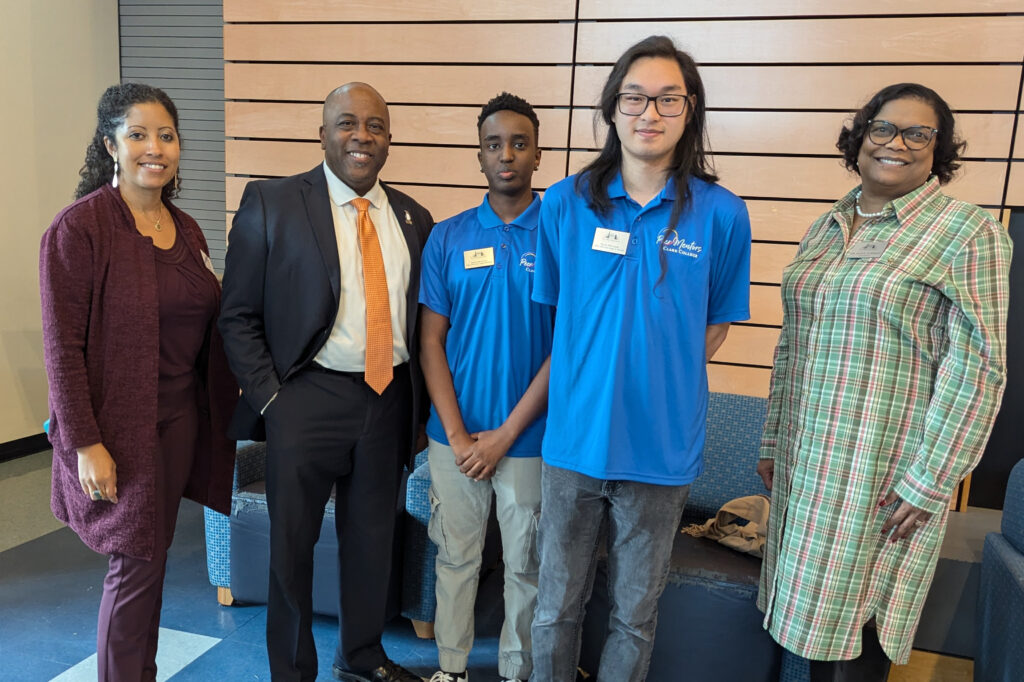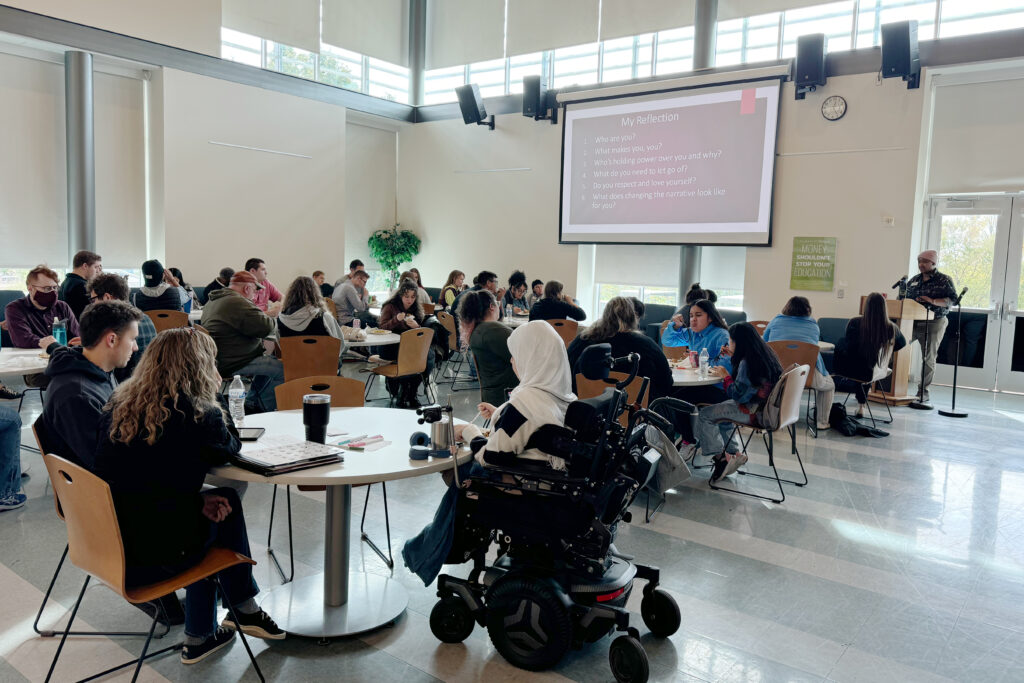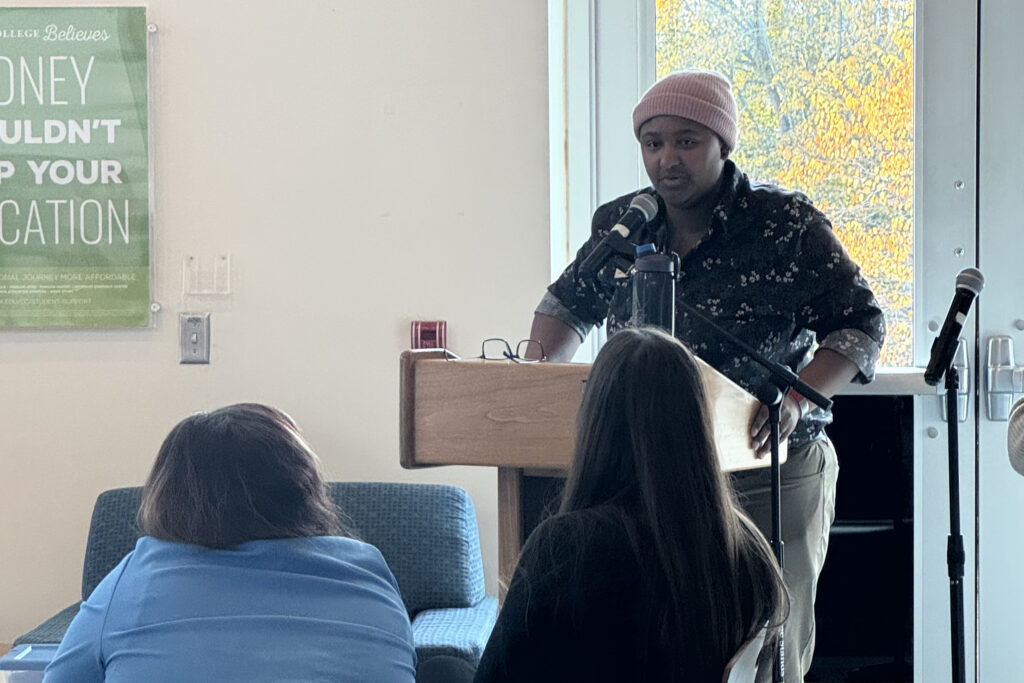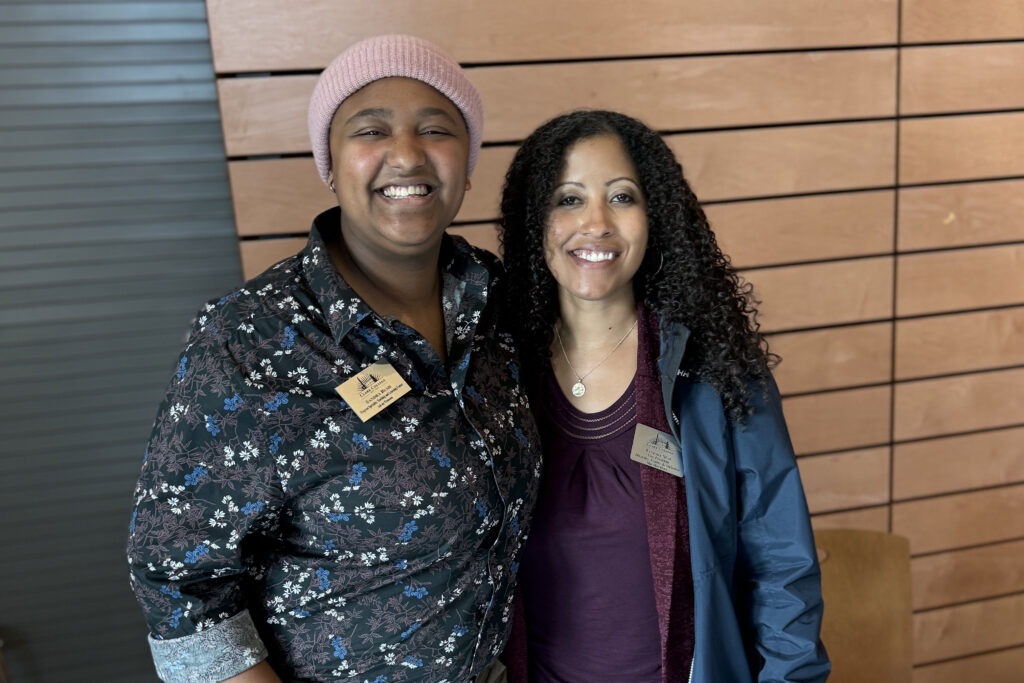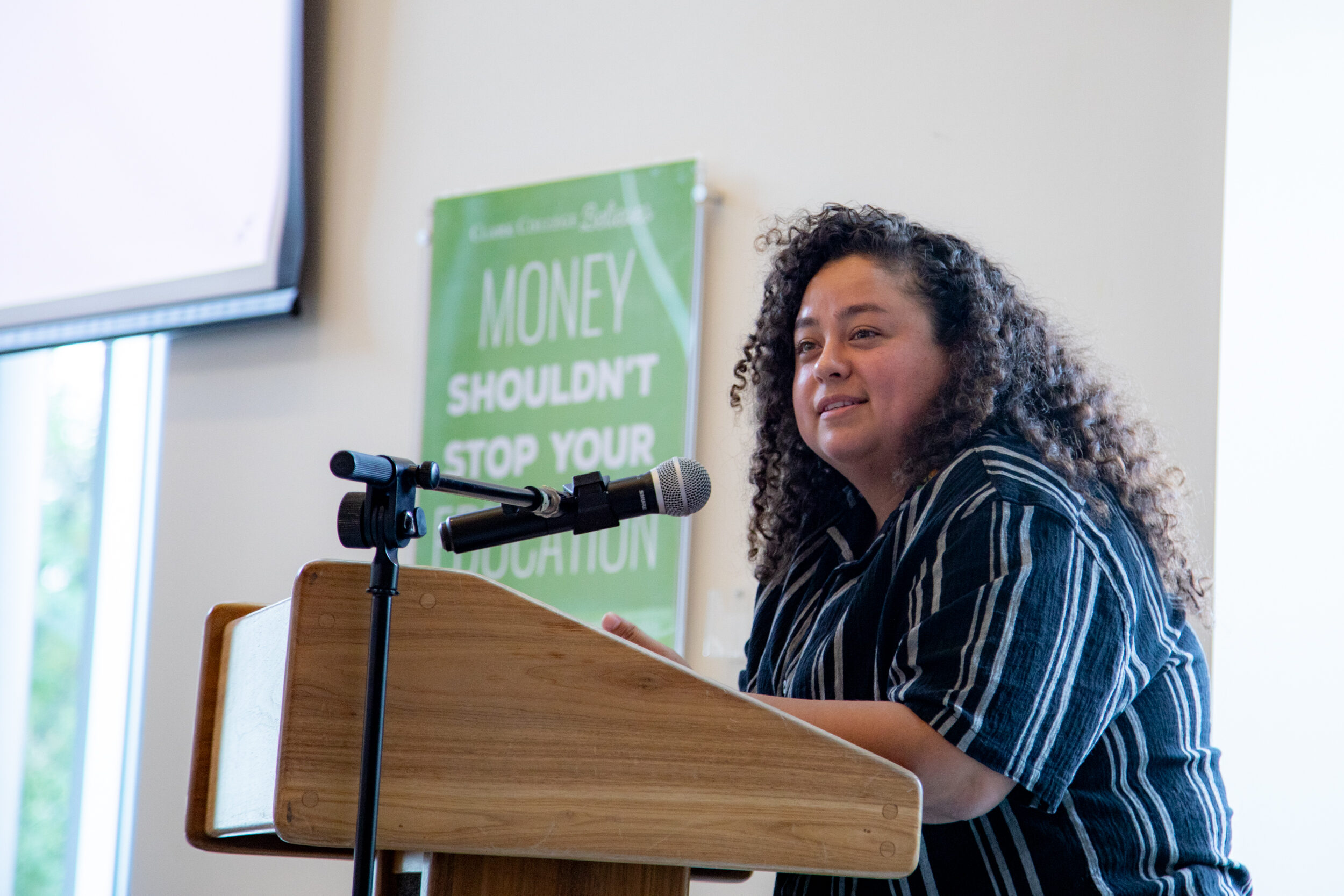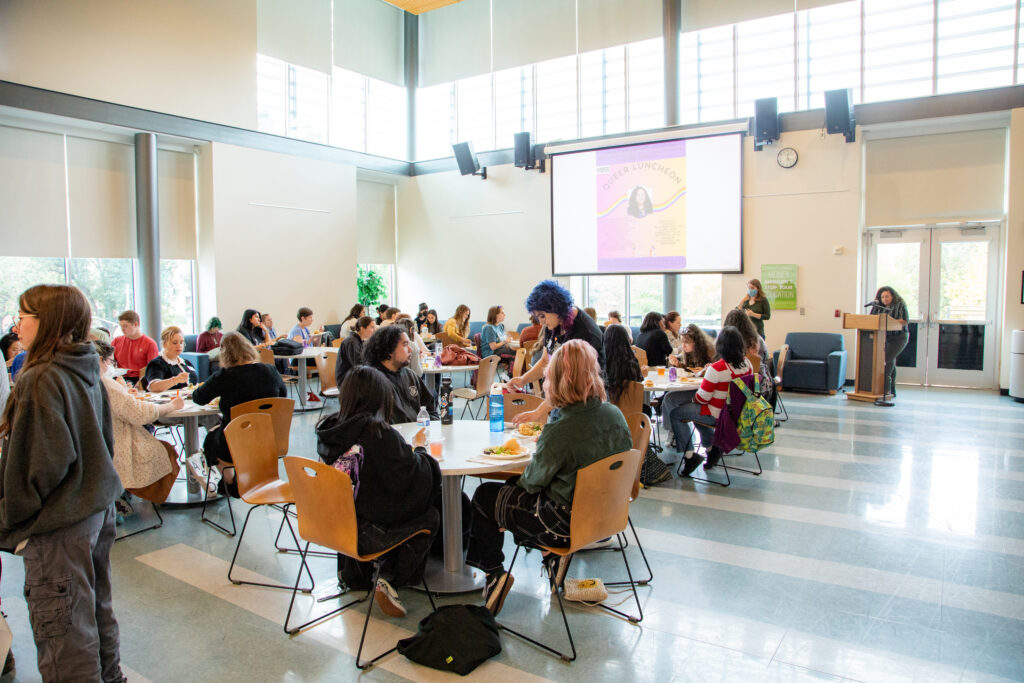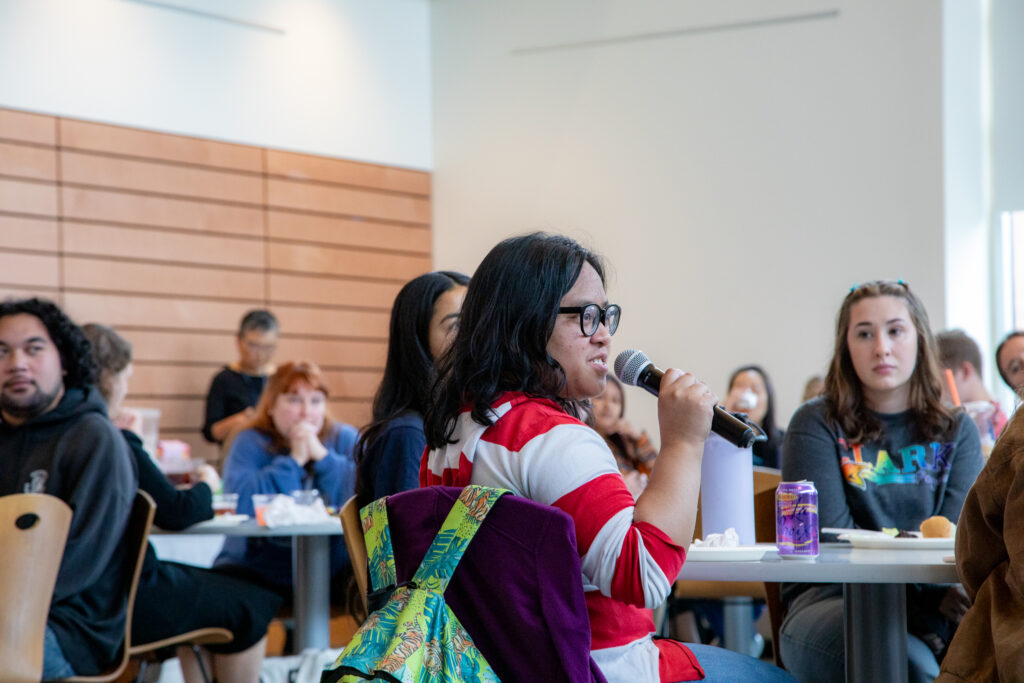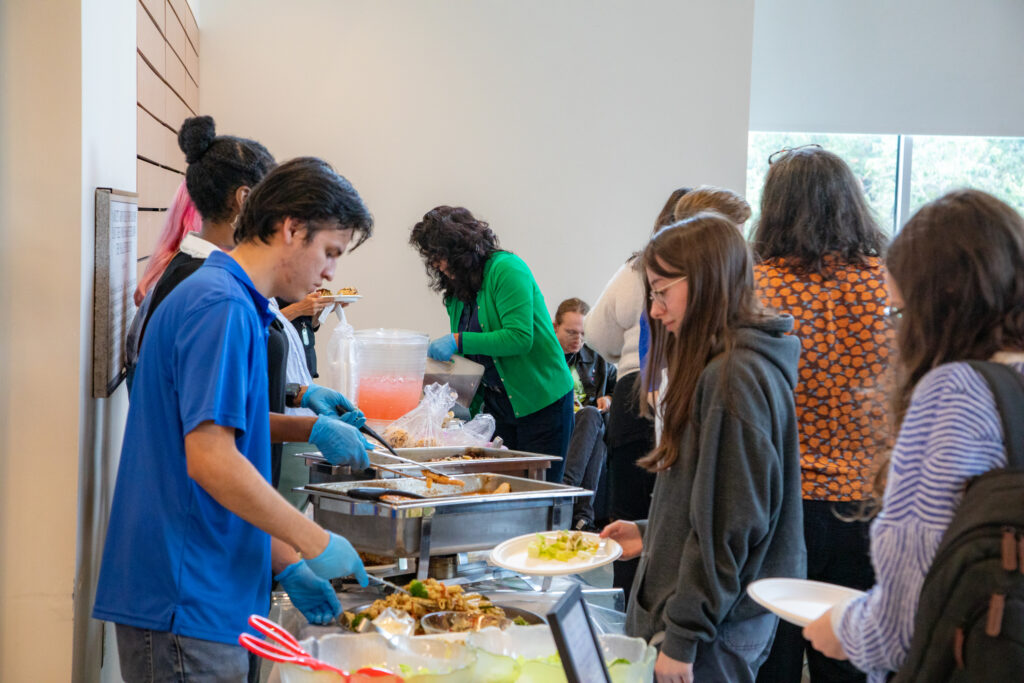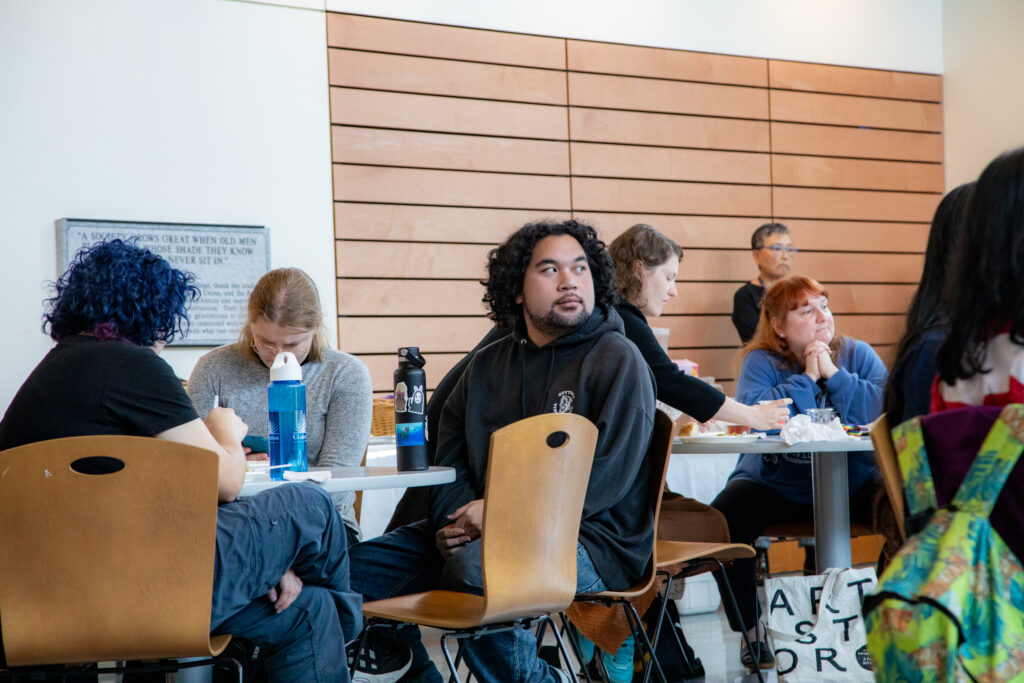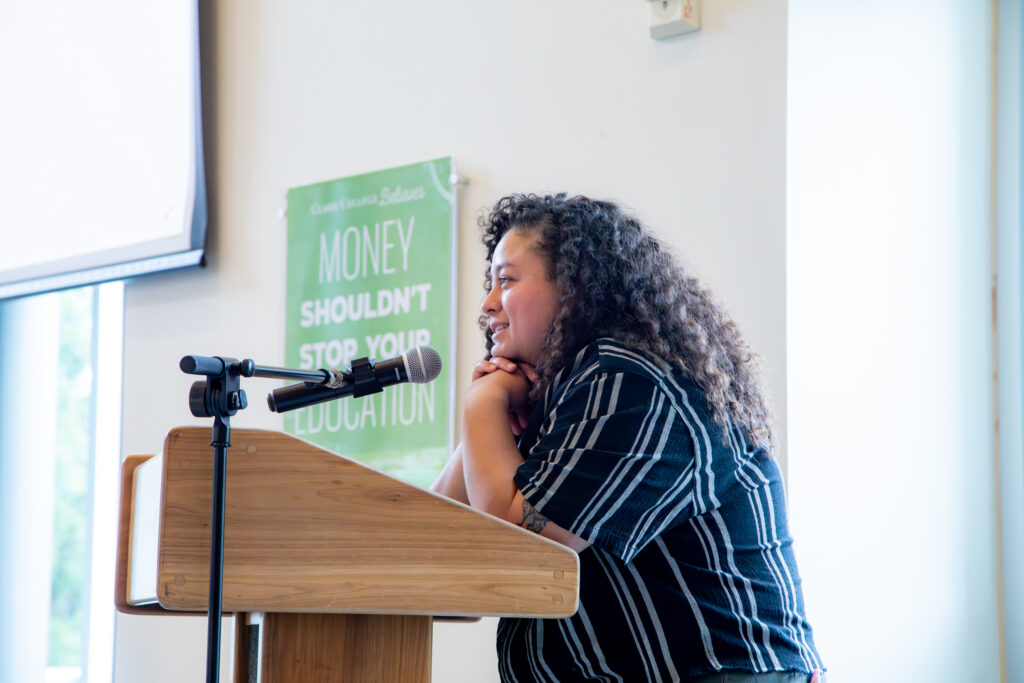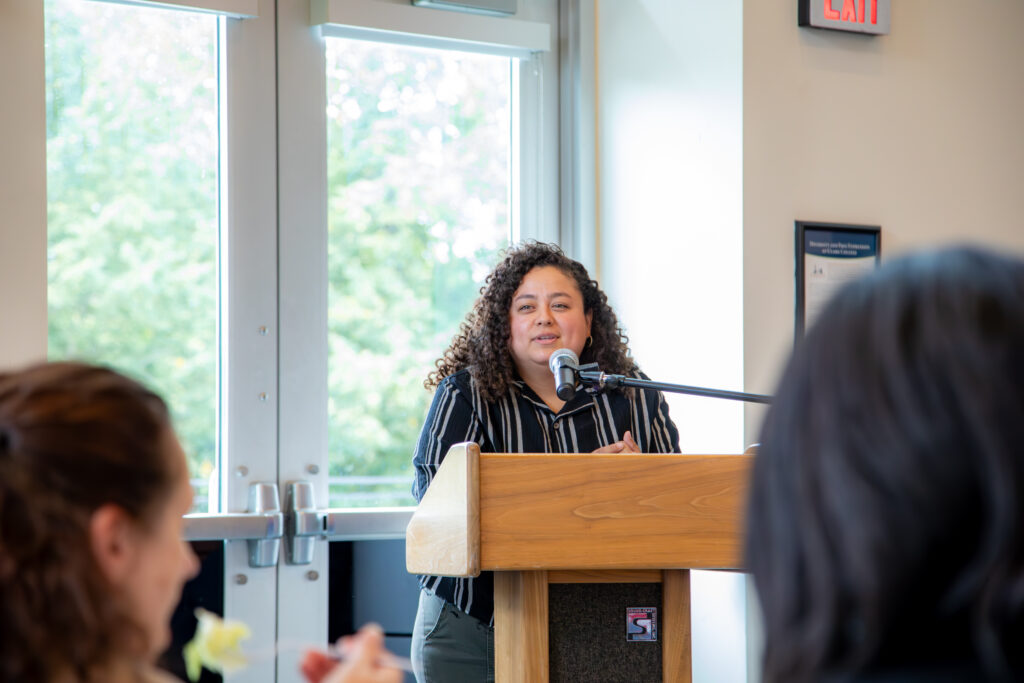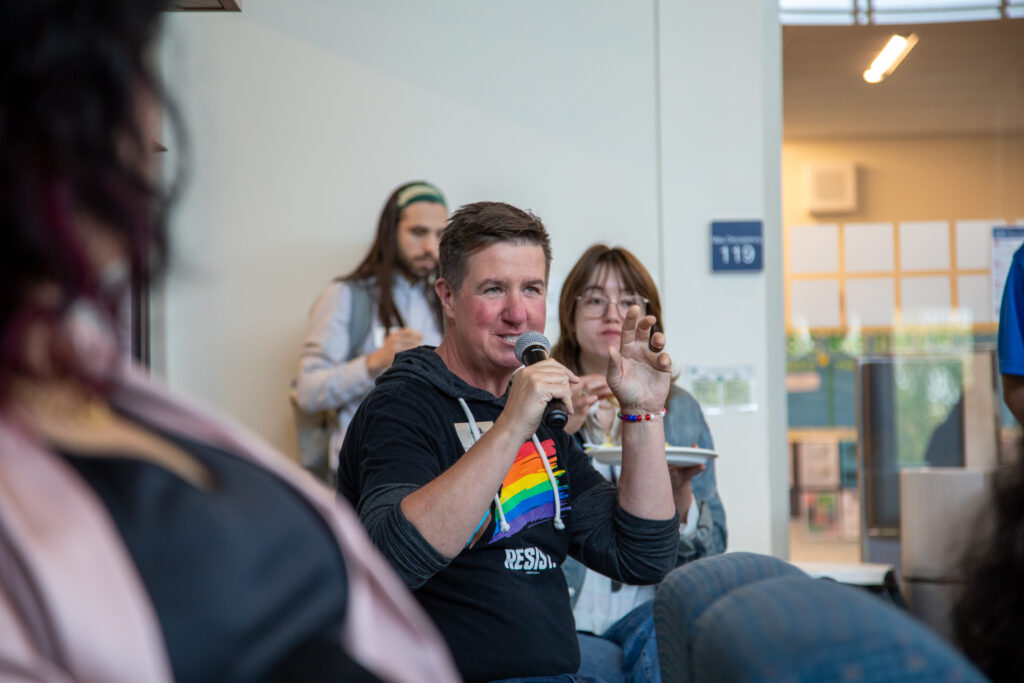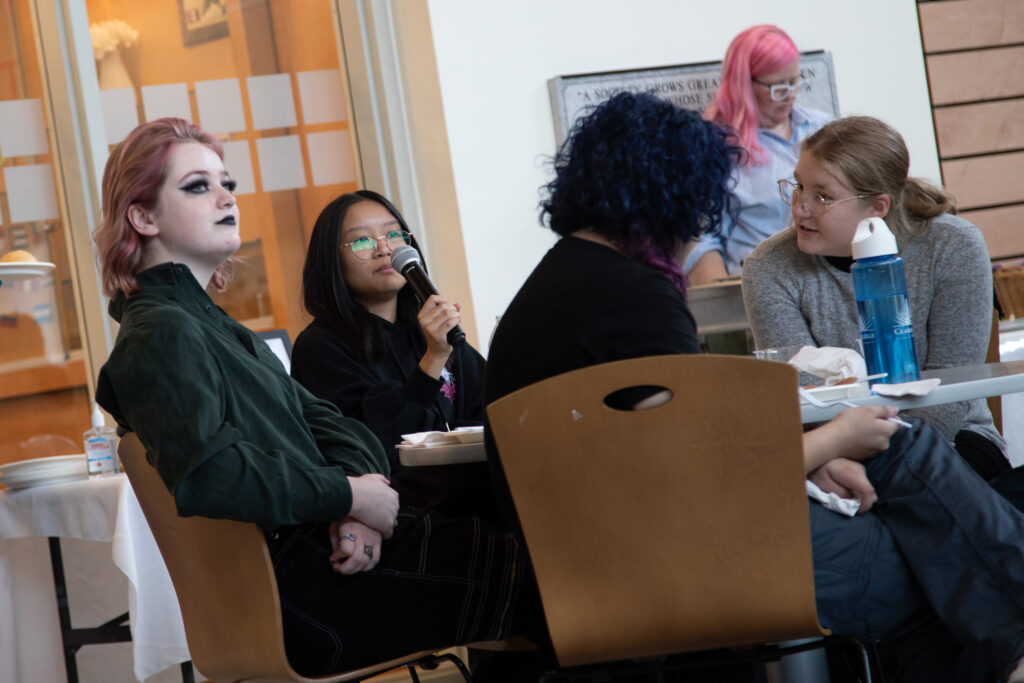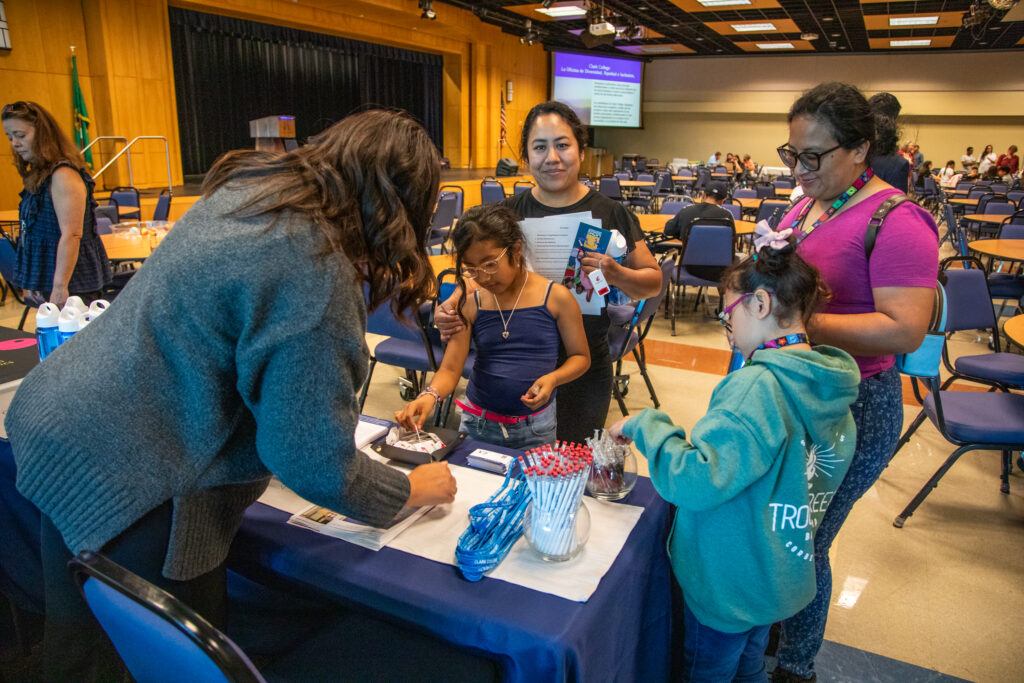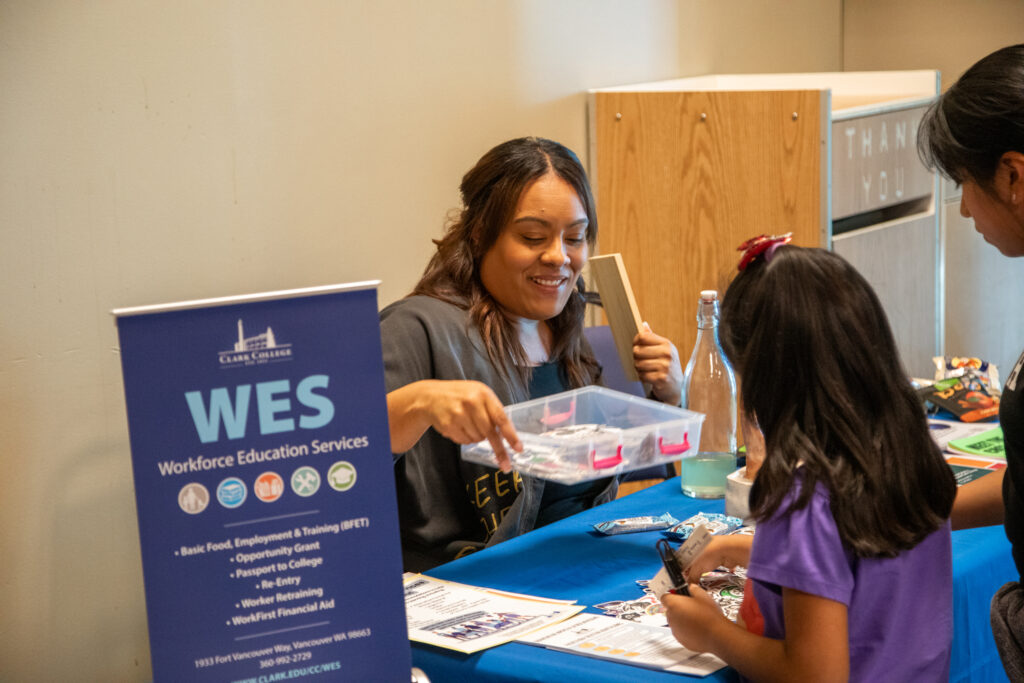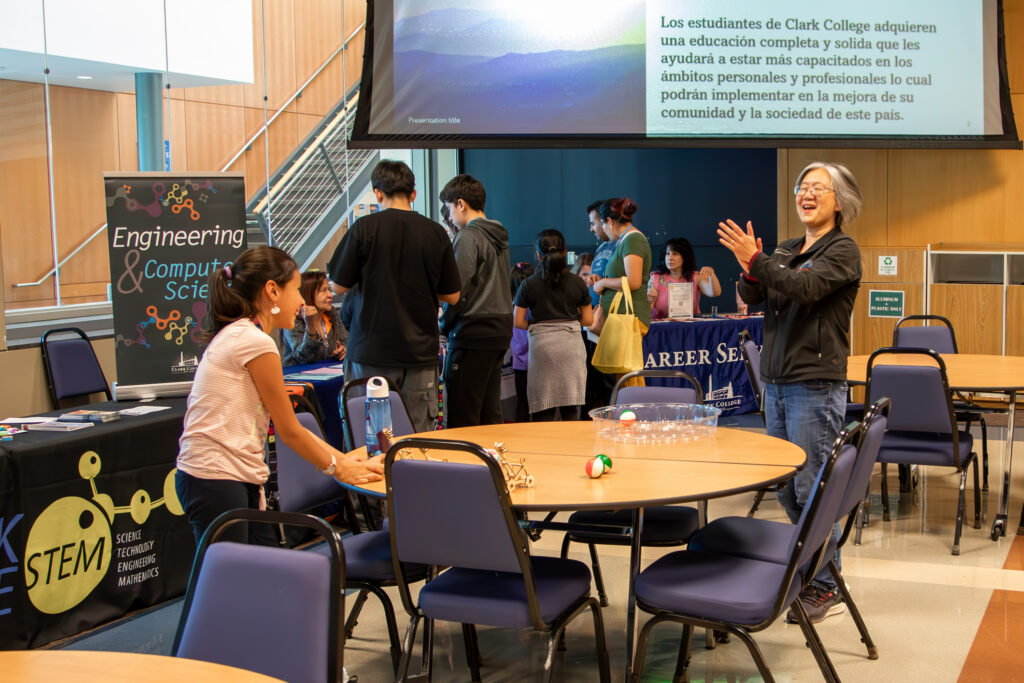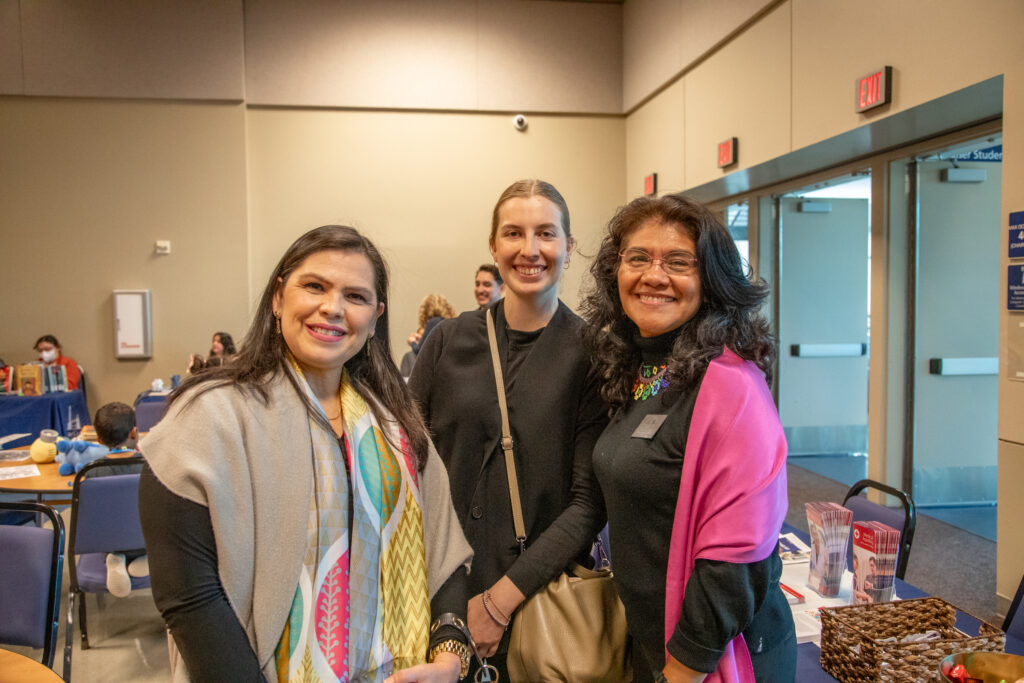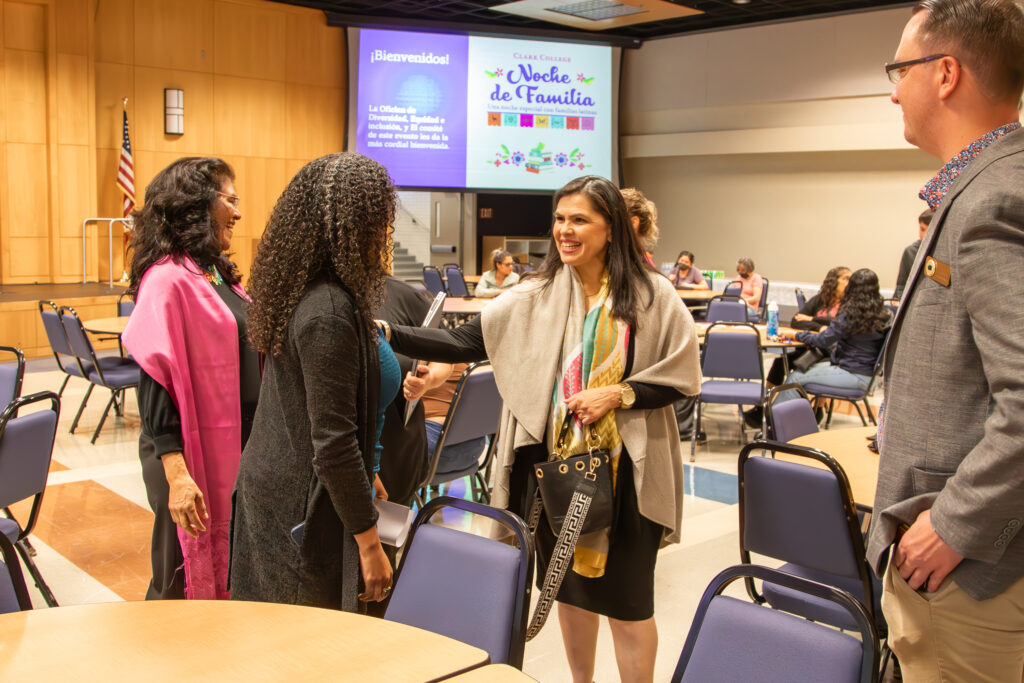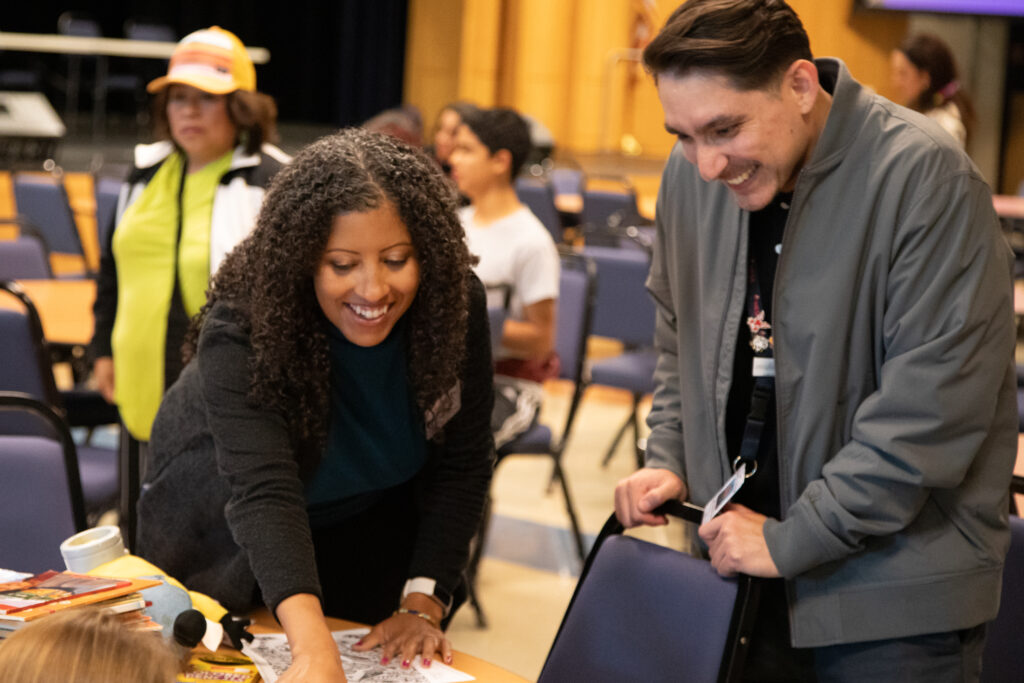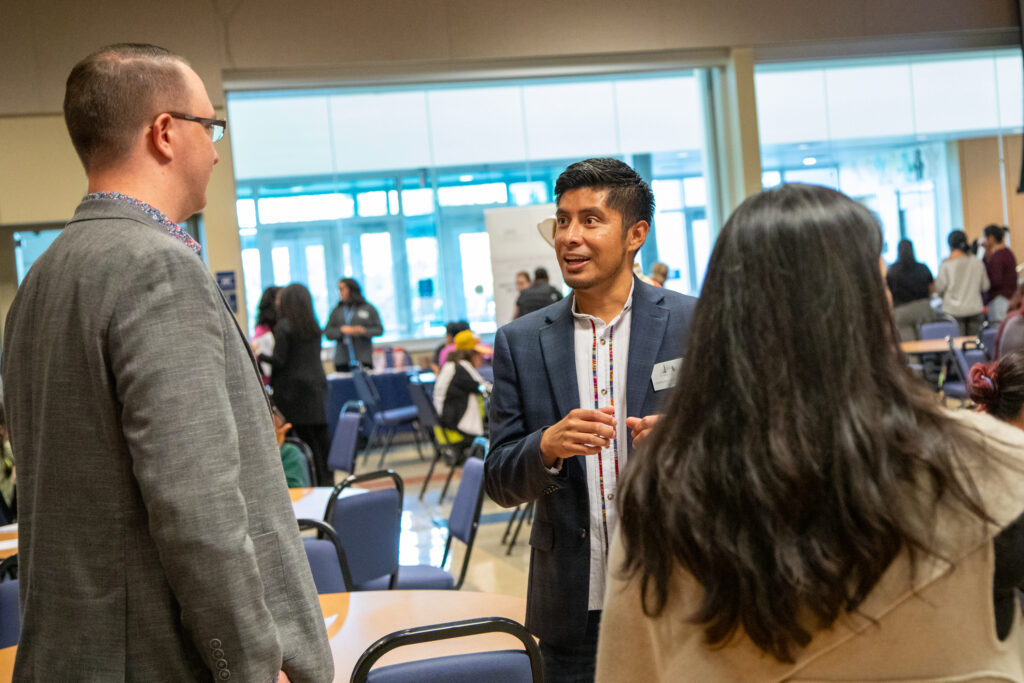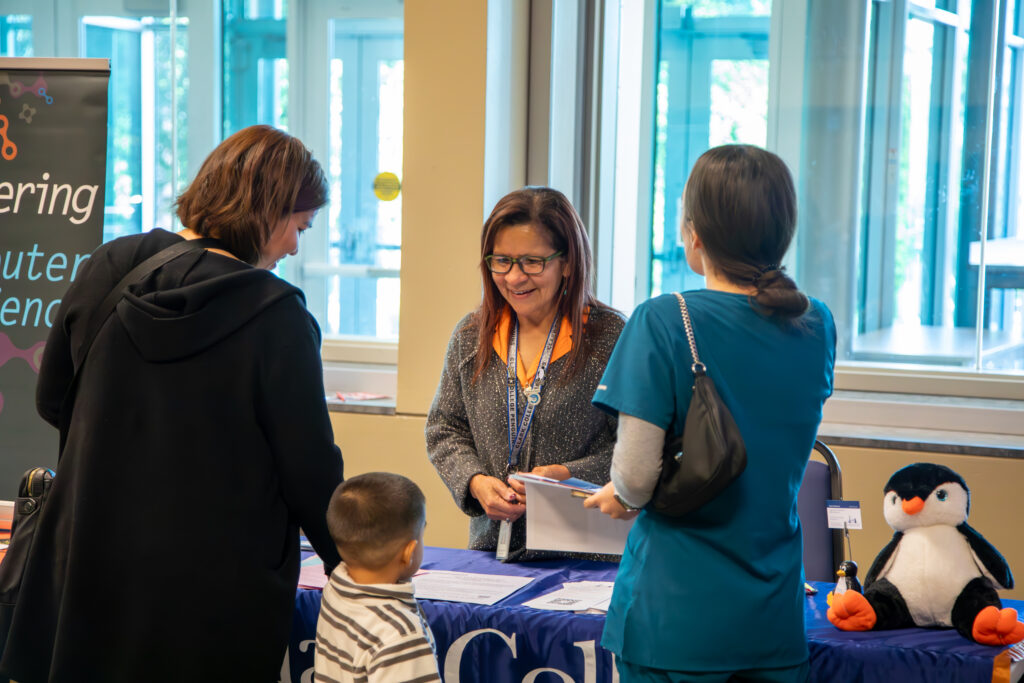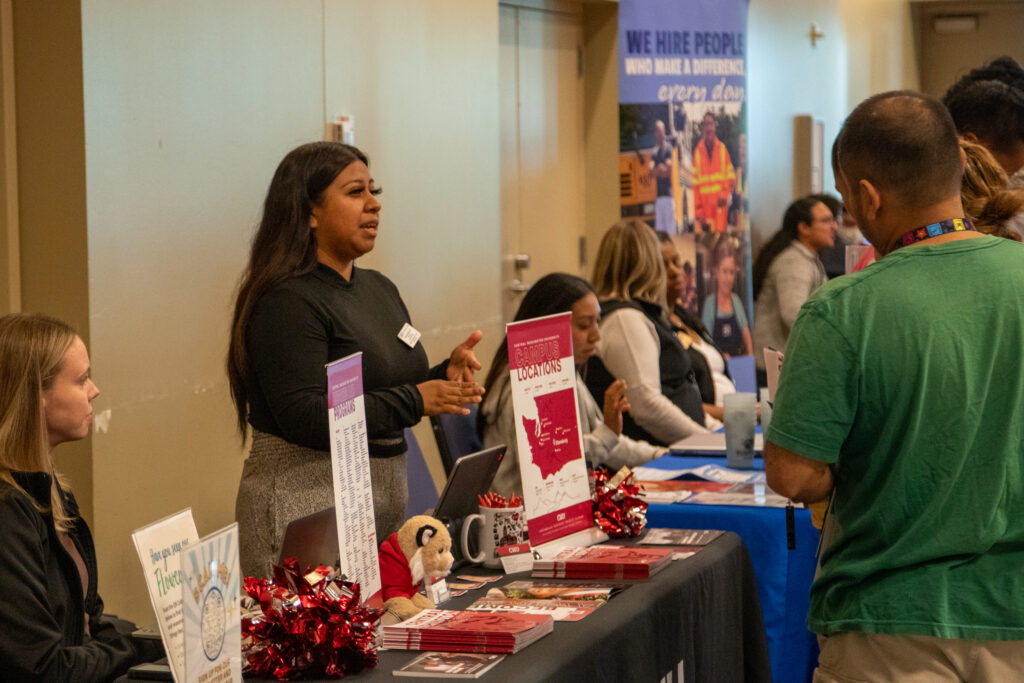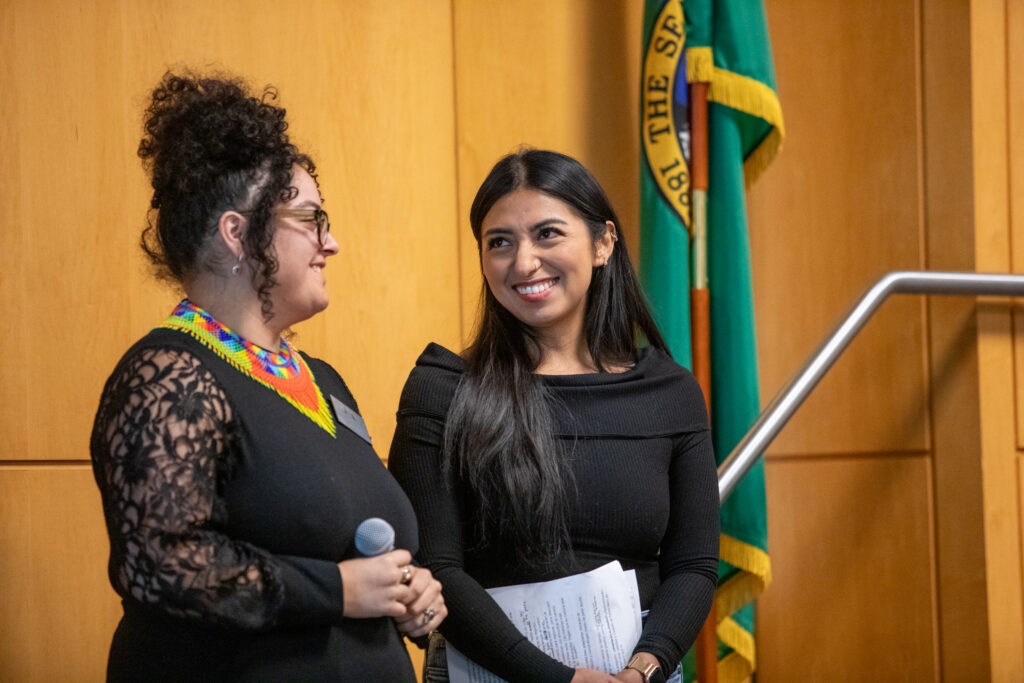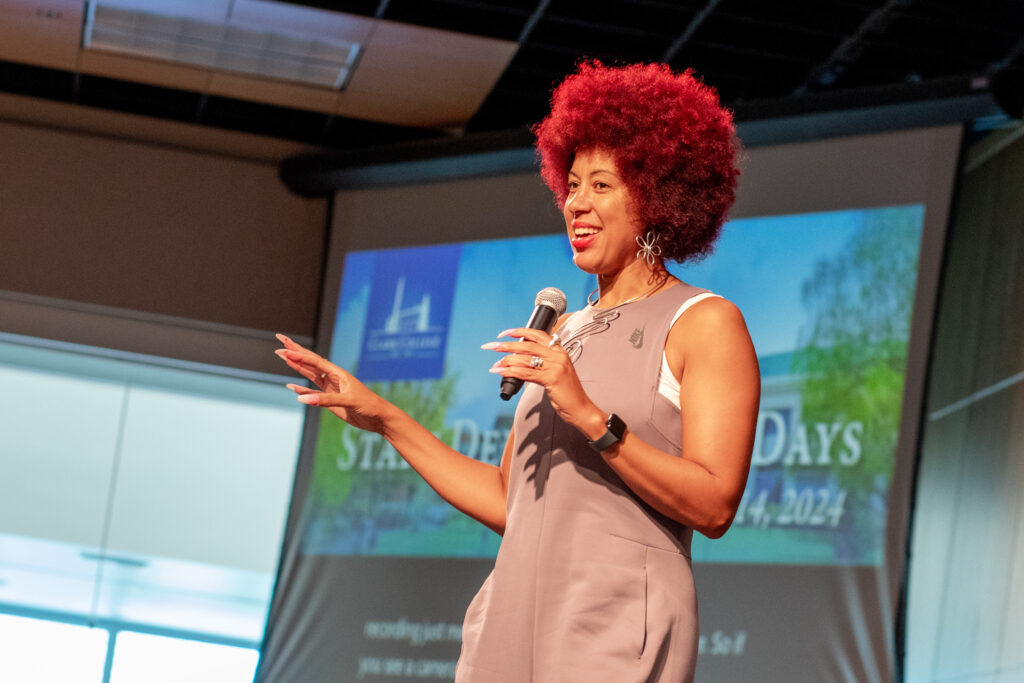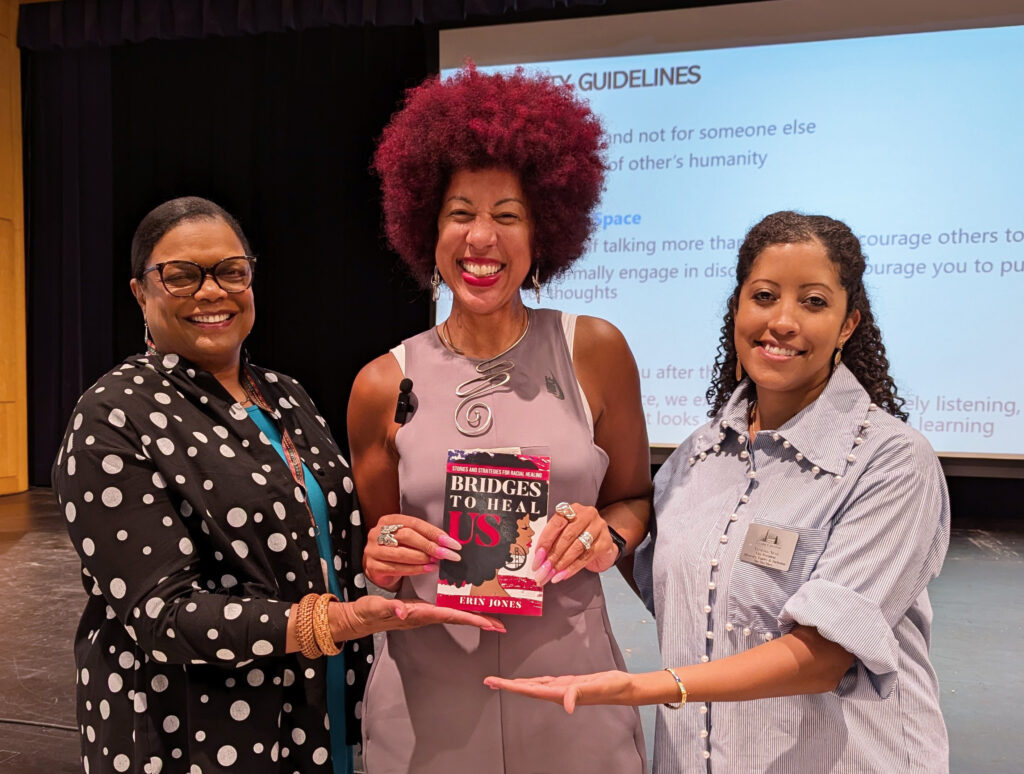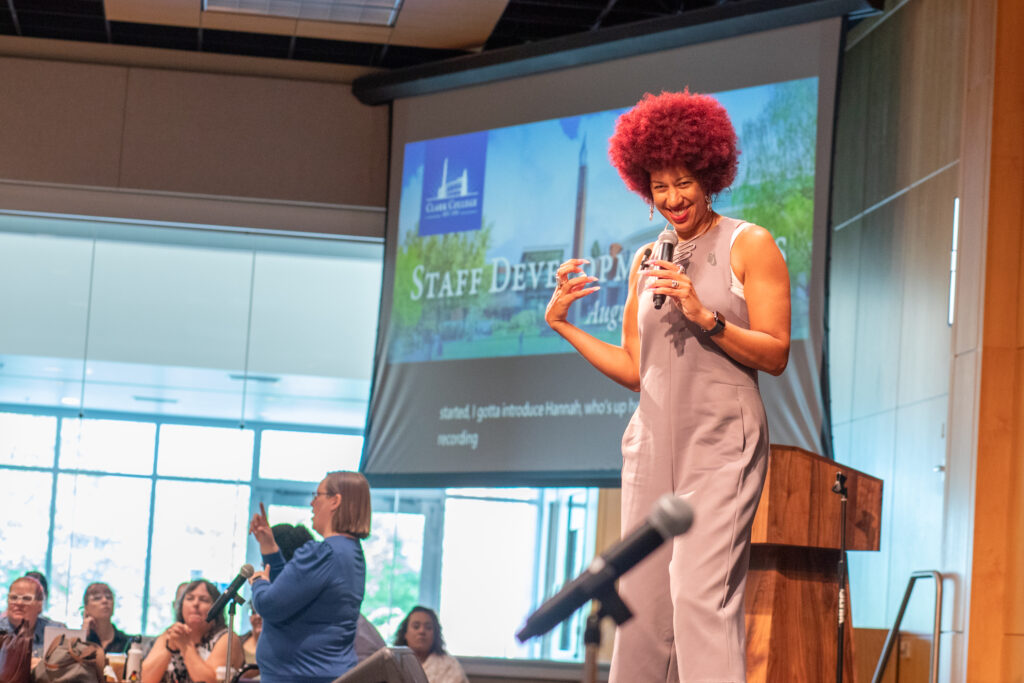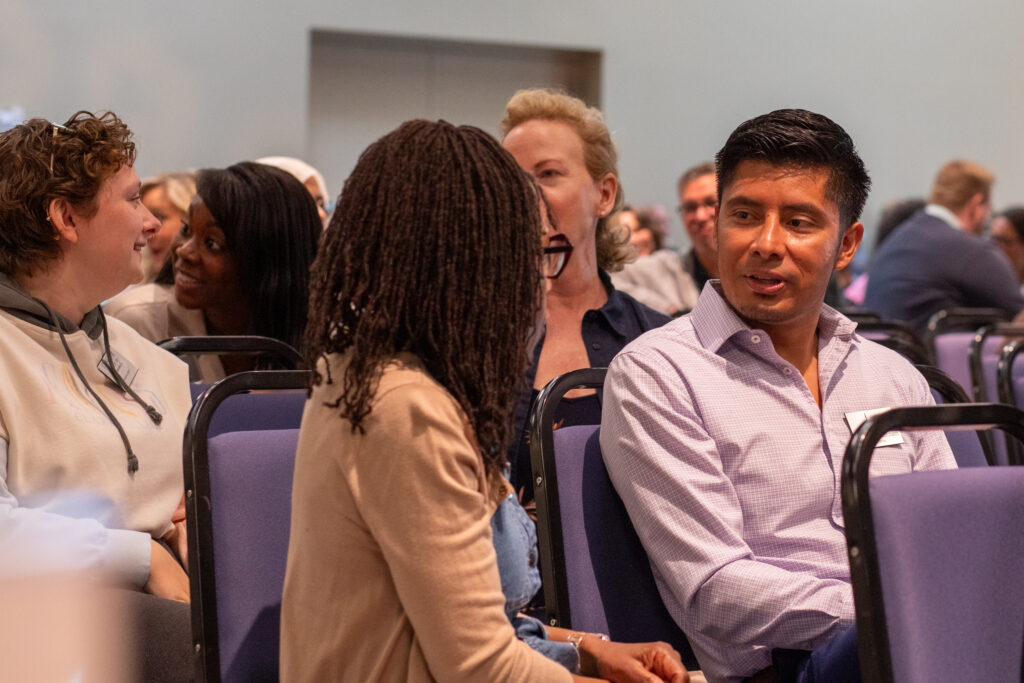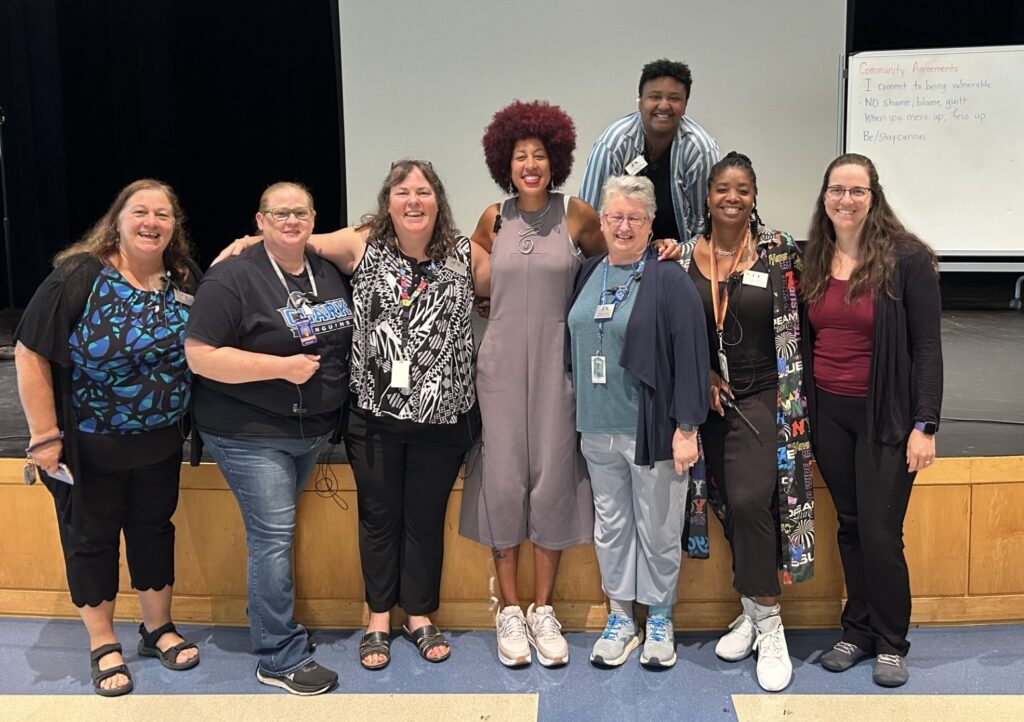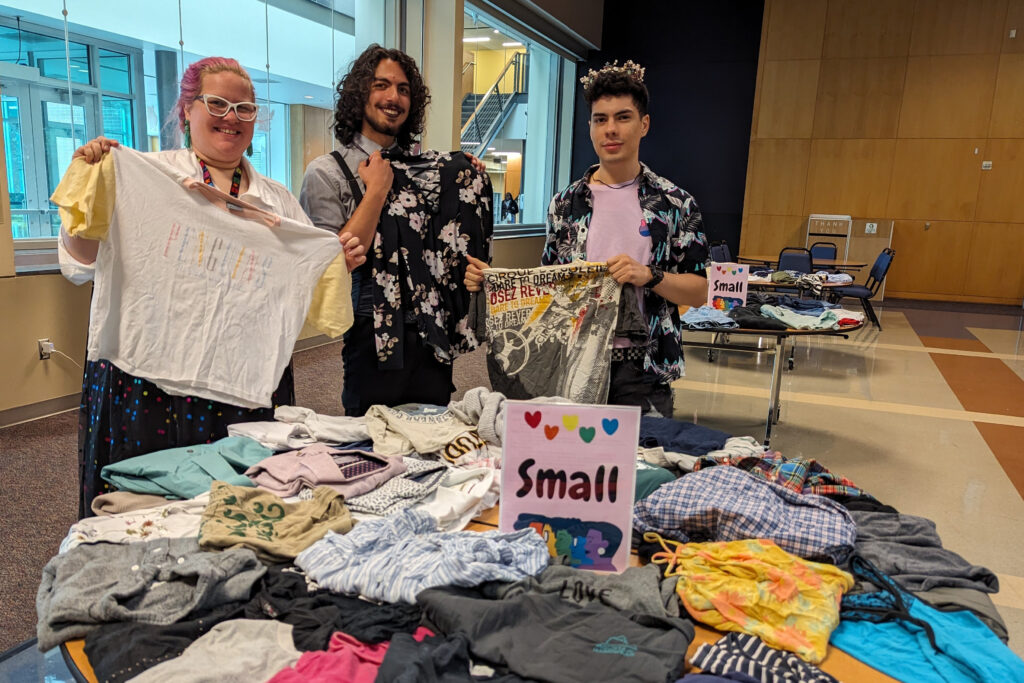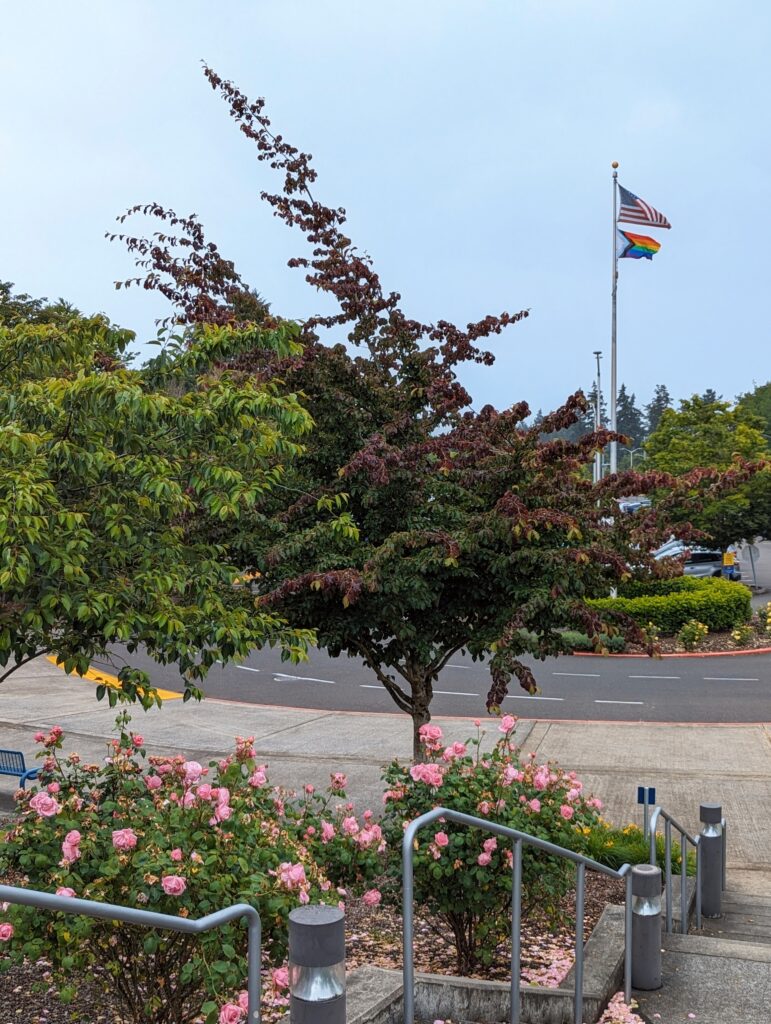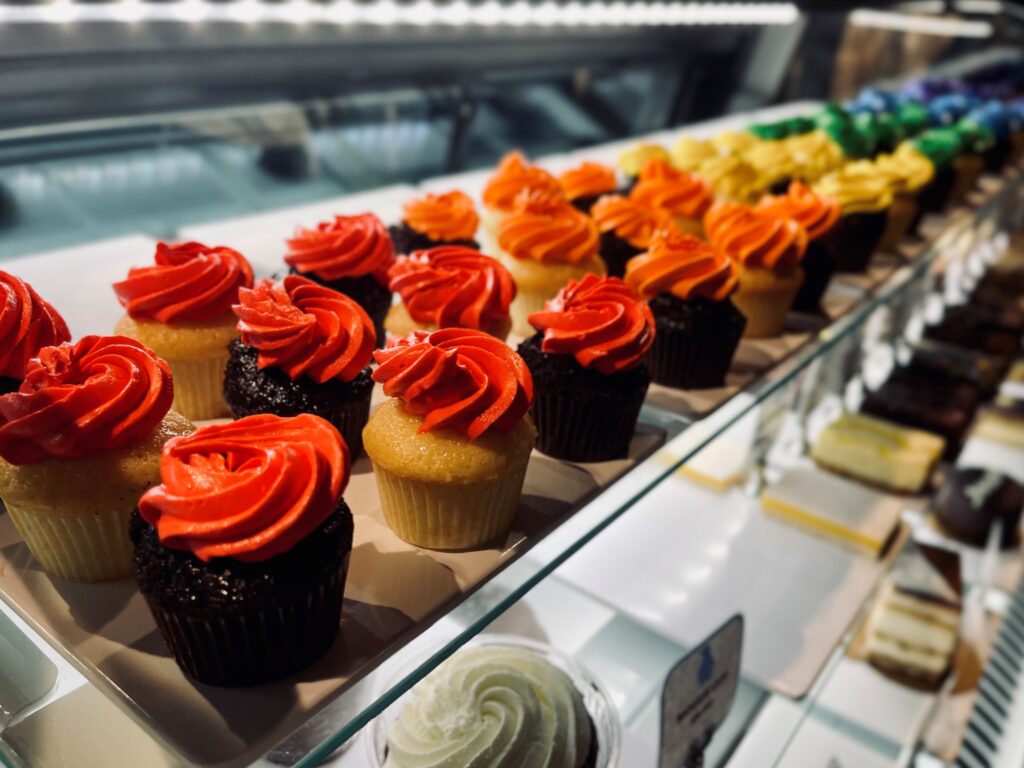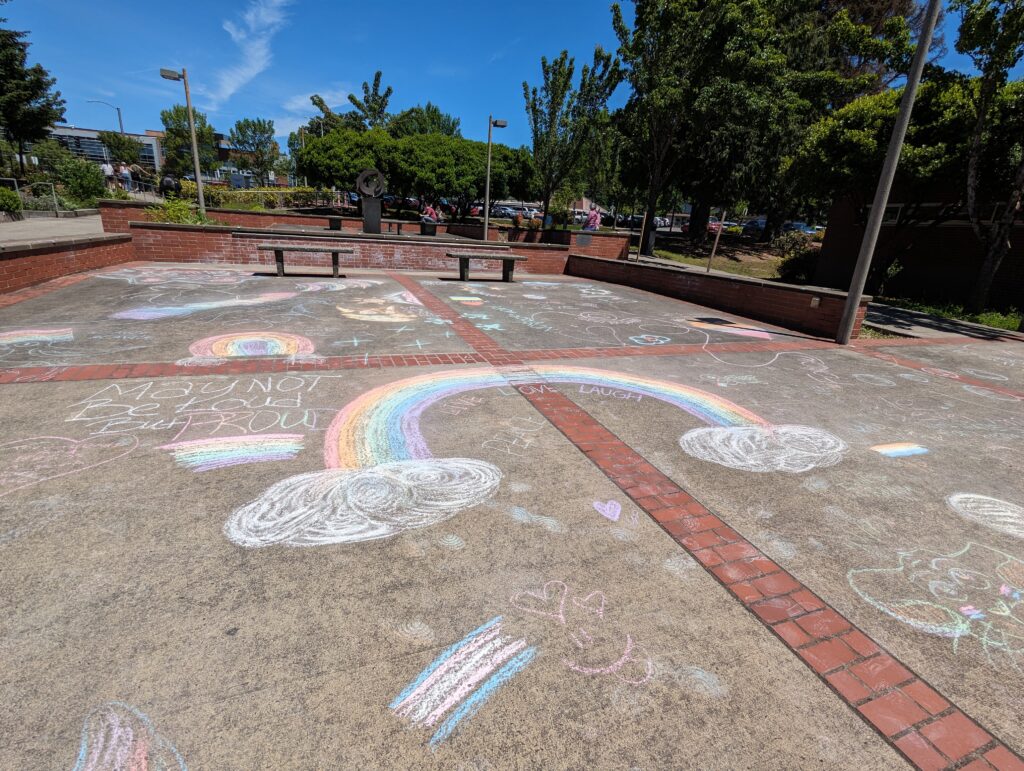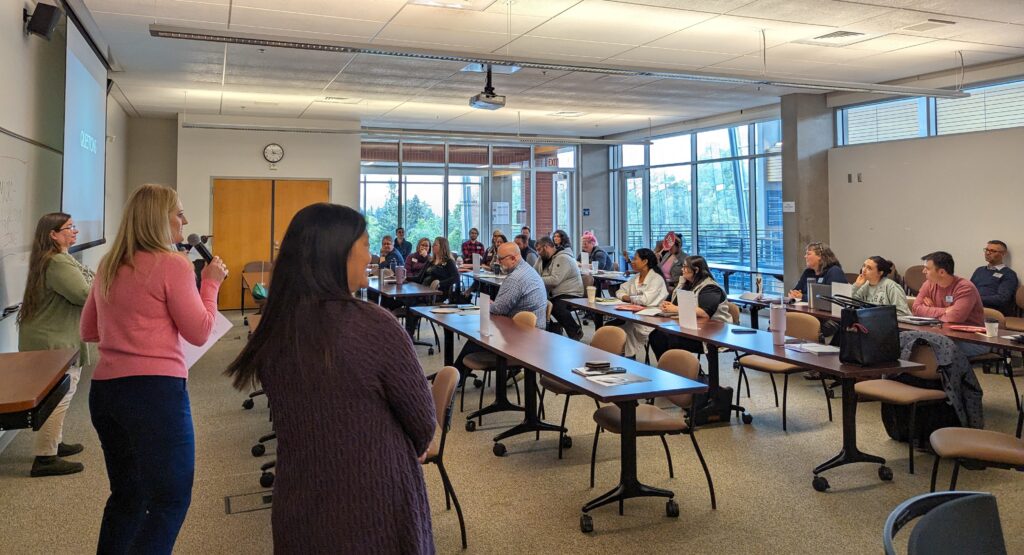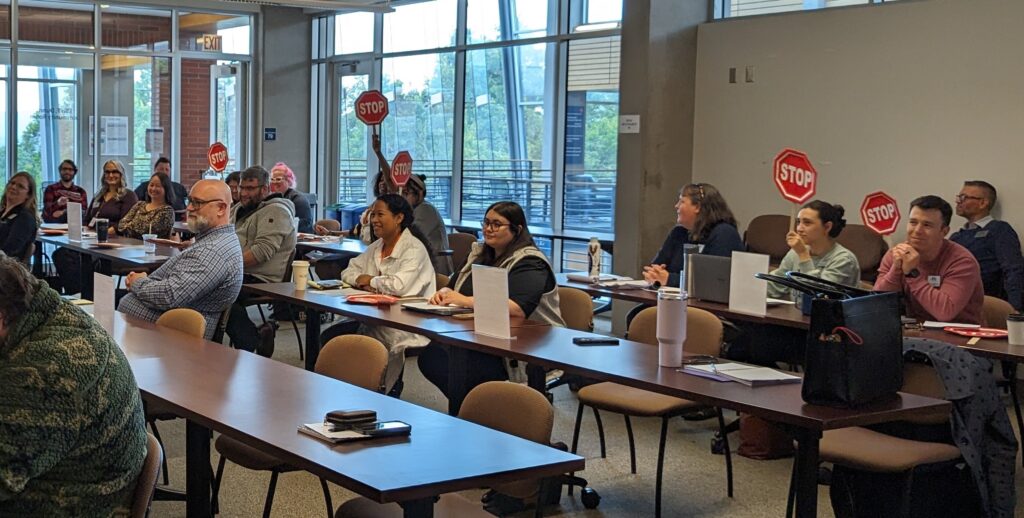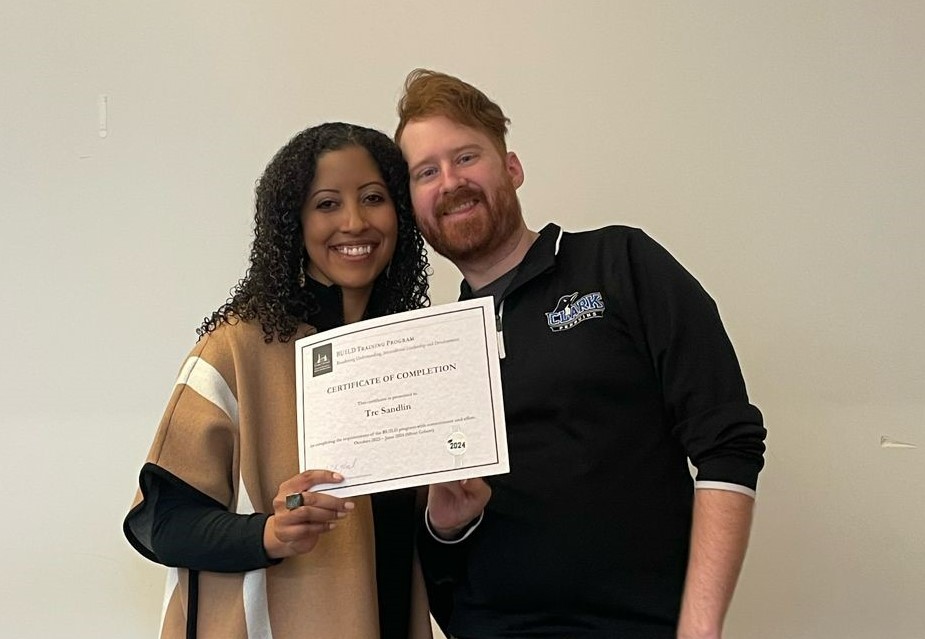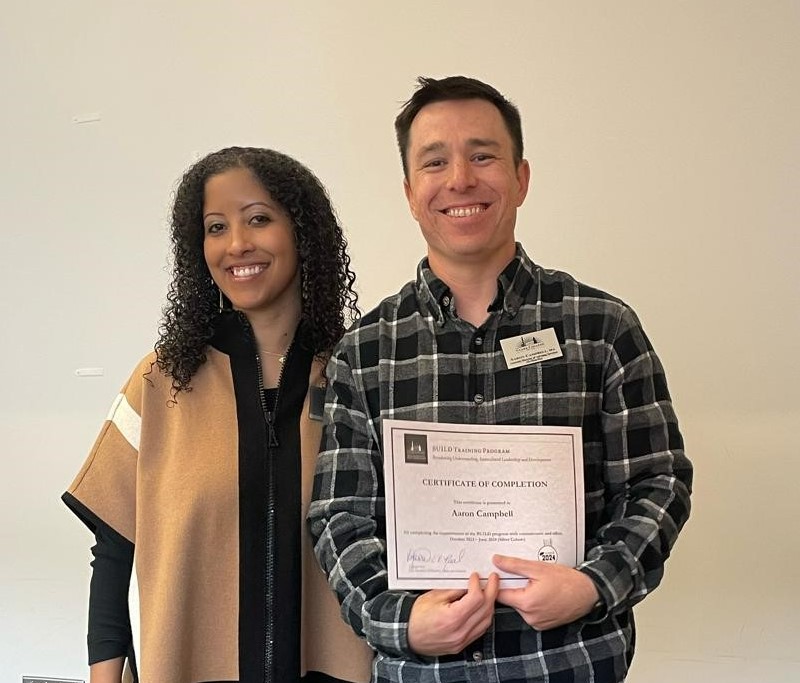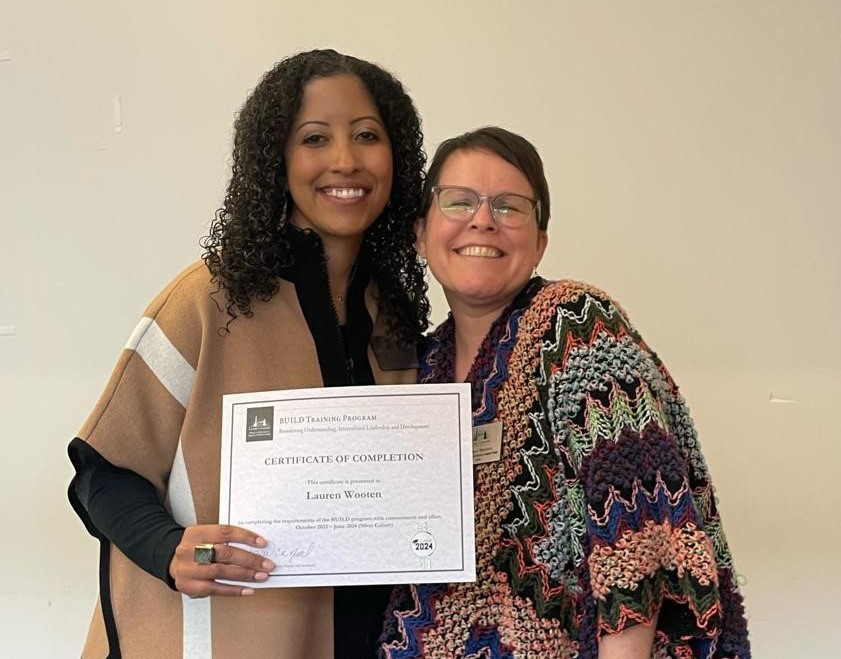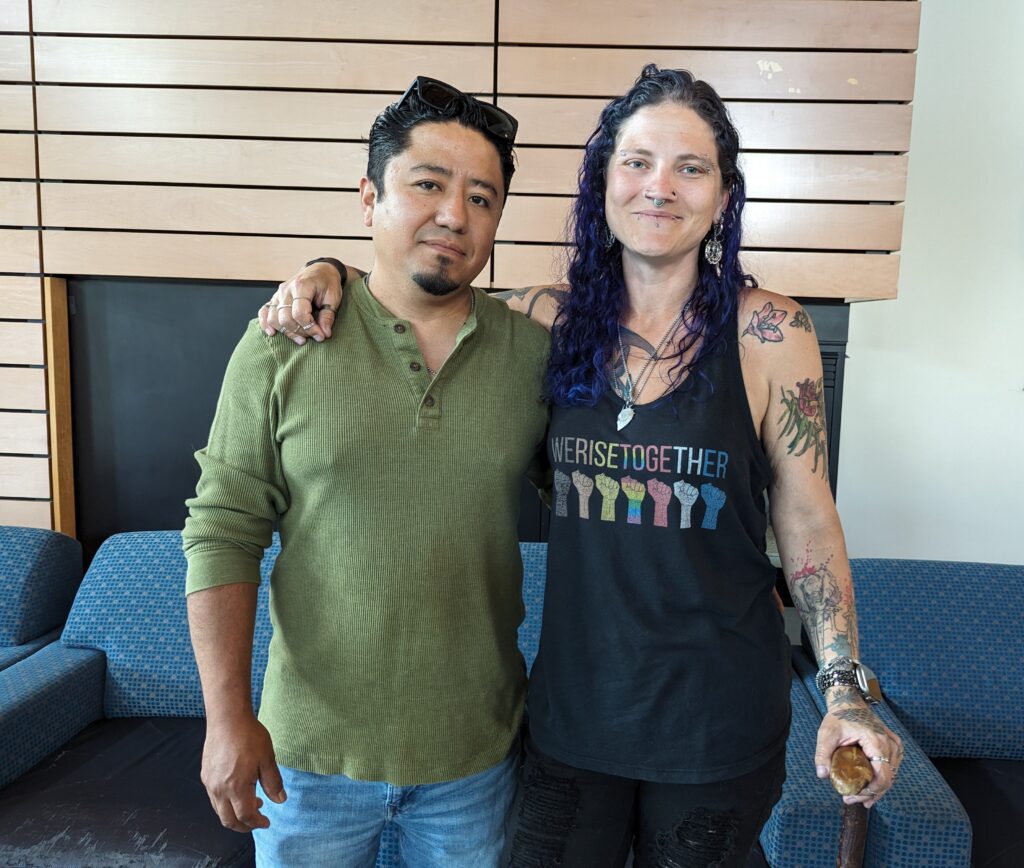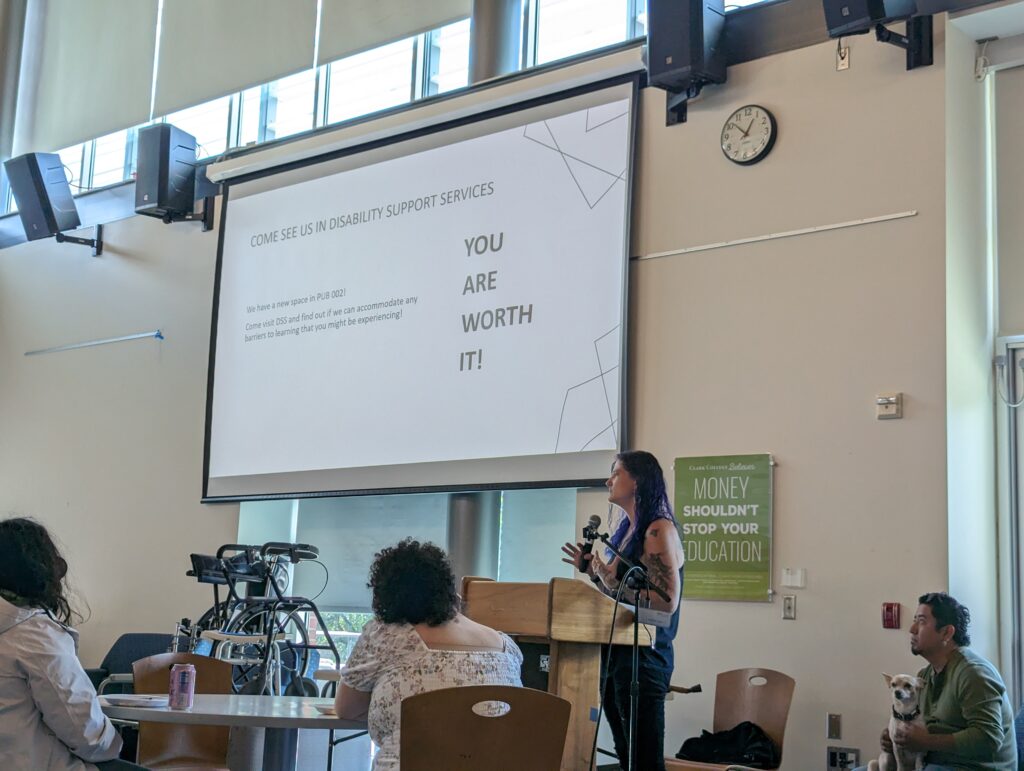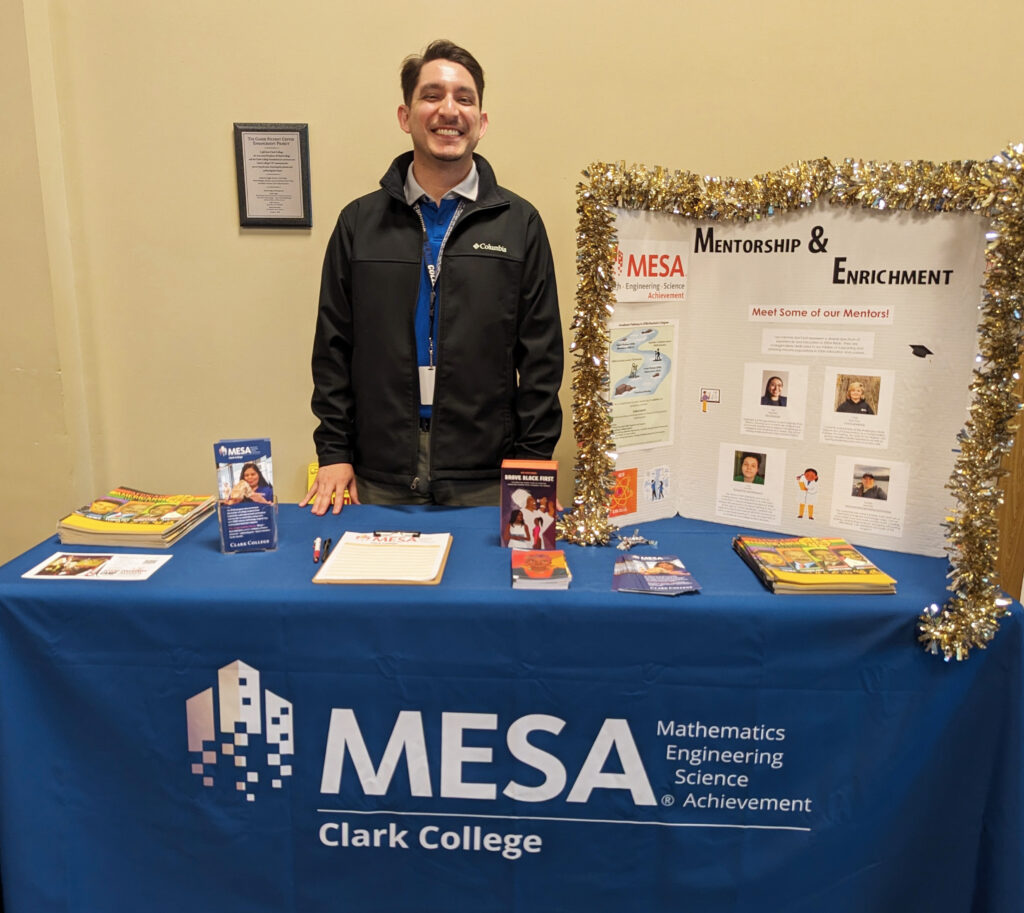A Week of Honoring MLK
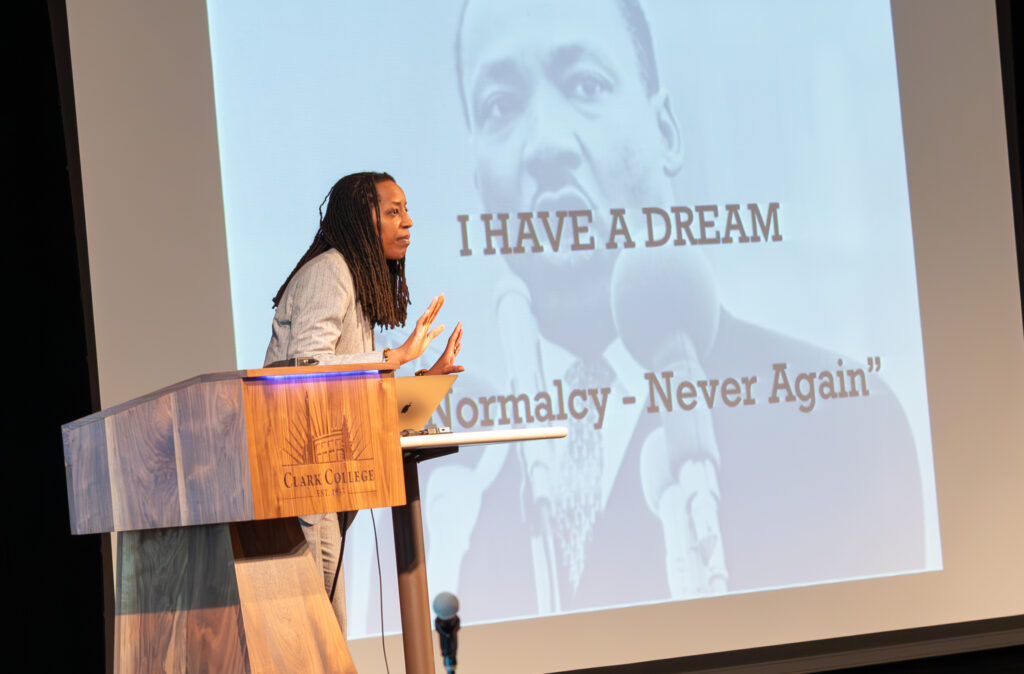
Author and abolitionist educator Dr. Bettina L. Love closed out a week of events on campus that honored the legacy of Dr. Martin Luther King, Jr. and the National Day of Racial Healing. During the college’s annual MLK celebration presented by the Office of Diversity, Equity, and Inclusion, the college community had opportunities to participate in three events designed to restore, educate, and empower.
Vanessa Neal, Vice President of Diversity, Equity, and Inclusion, summarized the week’s events: “What an honor to host Dr. Bettina Love on our campus to complete our week honoring Dr. King. Dr. Love’s words were thought-provoking and for me, affirming.”
She added, “The 2025 MLK Celebration at Clark College is more than a series of events—it’s a call to action. Whether through restorative practices, insightful dialogue, or powerful keynote addresses, this week will leave you inspired to continue Dr. King’s work of justice and equality.”
January 21 – Sound Bath
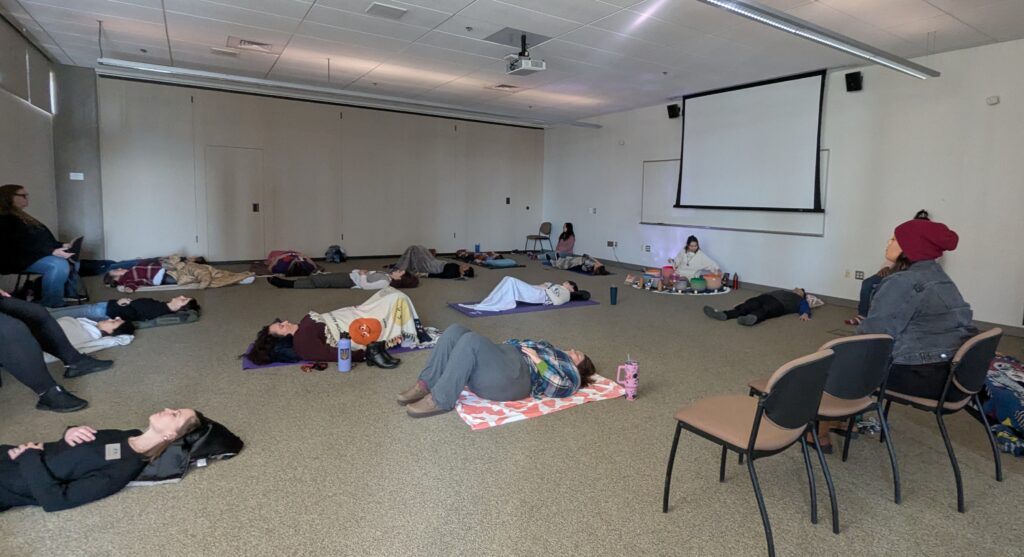
In alignment with the National Day of Racial Healing, we began our journey with a restorative healing space—a sound bath—a healing session that prepared participants to engage in the week’s events. It was an opportunity to connect within and find the balance needed to pursue equitable outcomes.
Sound bath therapist Hiroko Hibbard from Healing Hado led two sessions in Gaiser Hall 213. As people entered the room, she invited them to find a comfortable position on a yoga mat, the floor or a chair. She uses crystal bowls, gongs, and other sound-healing instruments to create a tranquil atmosphere.
Referring to a sound bath as “one of the great preventative medicines,” Hibbard explained that a sound bath combines the healing power of sound frequencies and vibrations with aromatherapy. Participating in a sound bath can help reduce stress, balance energy, and promote overall wellbeing.
“Everyone will experience the power of sound frequency,” she said. Then as people settled in and breathed deeply, the sounds began reverberating throughout the room.
If you’re curious about what a sound bath is, here’s a video of a sound bath.
January 22 – Book Discussion
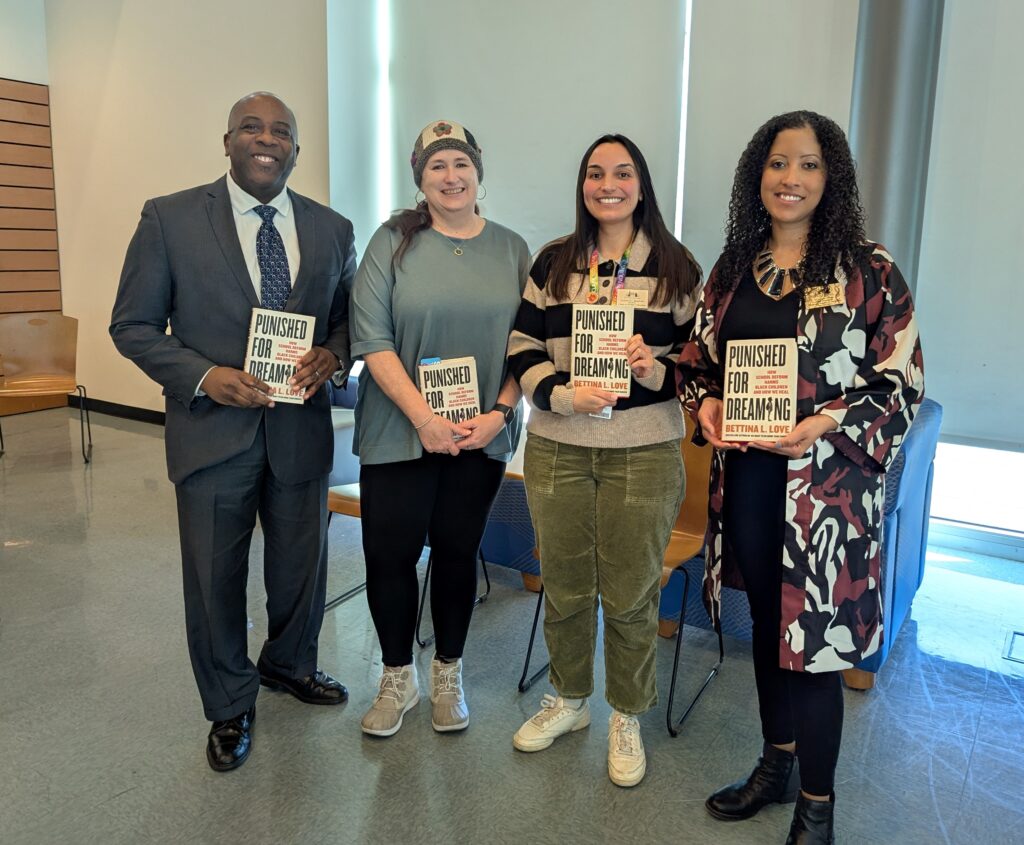
Vanessa Neal led a thought-provoking discussion of Dr. Bettina Love’s book, Punished for Dreaming: How School Reform Harms Black Children and How We Heal. The discussion preceded Dr. Love’s keynote address by exploring the historical and systemic barriers to educational equity and how we can envision healing pathways.
Tables were together to form a big circle in the Penguin Lounge, PUB 161 so that people could discuss some big ideas in Dr. Love’s book: telling your truth, white rage, erasure, school integration, reform and more.
Neal started by saying: “There’s not a closure piece to Dr. Love’s book. Accept non-closure. Be open to researching and learning on your own.”
Excerpts from the Book Discussion:
- “Why is truth telling so important to racial healing? Why is it important to center truth on racial healing?”
- “Our stories define us and how we interact with each other. Often, we make up stories about the person in front of us. When there’s space for truth, you realize you’re not the only one who experienced that.”
- “If we’re not speaking truth, whose life are we living?”
- “There was no space for Black children at school. They were actively erased.”
- “Erasure means I don’t acknowledge you as being human.”
- “When I think about erasure, I think of a pencil eraser. It takes deliberate, intentional effort to erase. It’s an engineering feat to erase—to dehumanize people.”
Vanessa Neal wrapped up the session by saying some progress has been made, but there is still so much work to be done. How do people do the work, but not get overwhelmed?
Neal asked, “So what is your action? What can you do? What will you do?”
Paraphrasing Michelle Obama, Neal said, “Do something. Pick something.”
January 23 – Keynote Presentation by Dr. Bettina L. Love
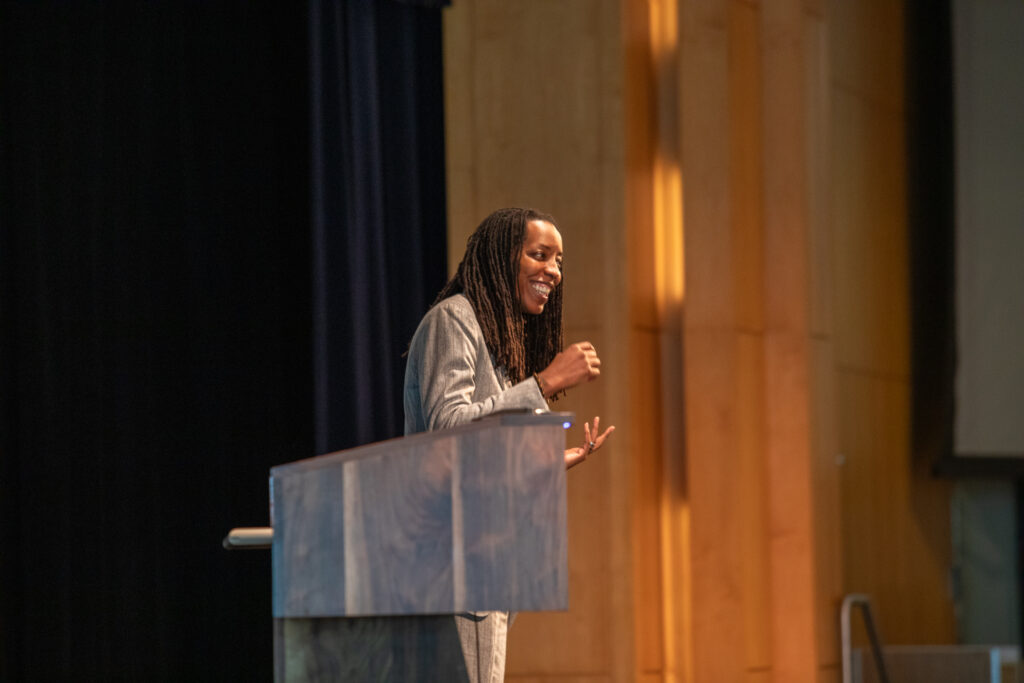
Wrapping up the college’s week of events honoring the legacy of Dr. King, Dr. Bettina L. Love spoke to an attentive audience in Gaiser Student Center. Dr. Bettina Love holds the esteemed William F. Russell Professorship at Teachers College, Columbia University, and is the acclaimed author of Punished for Dreaming: How School Reform Harms Black Children and How We Heal, a New York Times bestseller.
In her keynote, Dr. Love delved into the struggles and possibilities of creating a future rooted in abolitionist teaching. She is the author of We Want to Do More Than Survive: Abolitionist Teaching and the Pursuit of Educational Freedom.
Abolitionist teaching is built on creativity, imagination, boldness, ingenuity, and rebellious spirit and methods of abolitionists to demand and fight for an educational system where all students are thriving, not simply surviving.
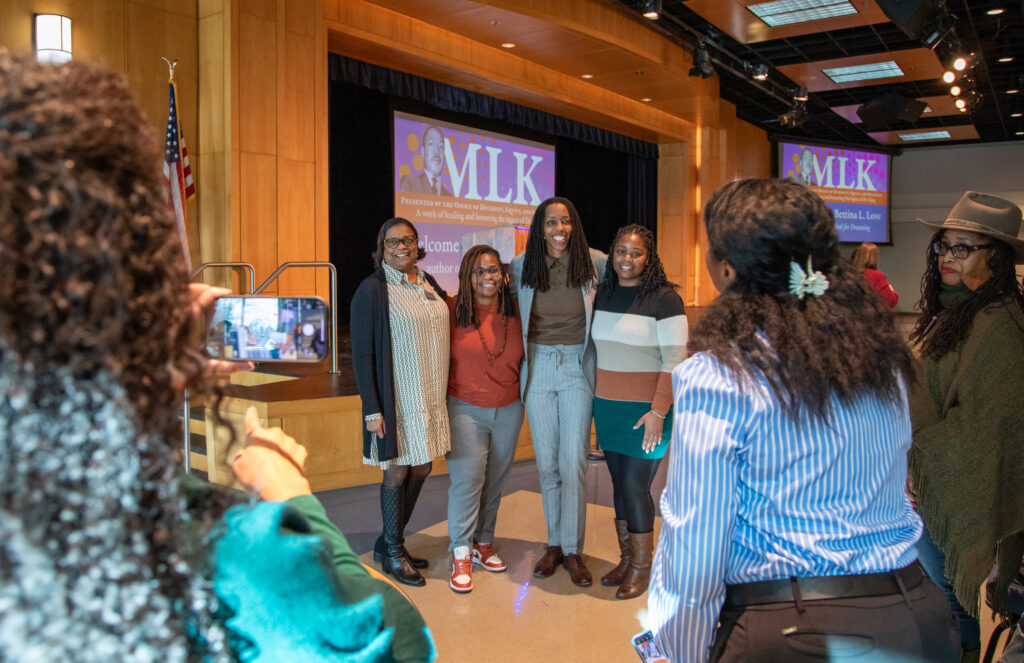
This event was open not only to the Clark community, but also to the greater community. Some educators had driven a distance to attend. One had taken a wellness day at work to attend.
Dr. Love provided insight into Dr. King’s work, beginning with his inspiring speech during the August 28, 1963, March on Washington and going up to the Poor People’s Campaign.
Excerpts from Dr. Love’s presentation:
- “Racism is a byproduct of capitalism and greed.”
- “Dr. King is saying for real justice, it’s about your values. If your values don’t change, what’s the point?”
- “Your fate is tied to another person’s fate. You don’t get to step out of this. We are entangled together.”
Dr. Love to college students: “You’re here not just to learn, but to be transformed by what you learn. If you don’t leave here with more critical thinking, more humanity, that’s a problem.”
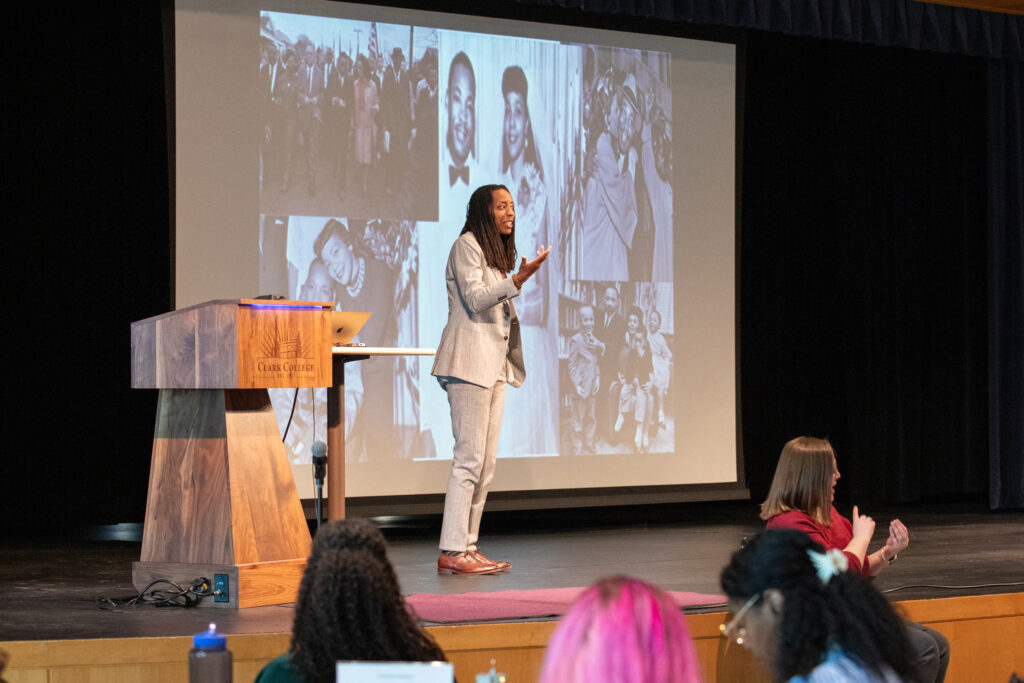
Dr. Love quoted Dr. King:
“For years I labored with the idea of reforming the existing institutions of the South, a little change here, a little change there. Now I feel quite differently. I think you’ve got to have a reconstruction of the entire society, a revolution of values.” — Dr. King told journalist David Halberstam in April 1967
In Dr. King’s last book, Where Do We Go from Here: Chaos or Community, he wrote: “A year (after the passage of the Voting Rights Act of 1965), the white backlash had become an emotional electoral issue in California, Maryland and elsewhere. In several Southern states, men long regarded as political clowns had become governors or only narrowly missed election, their magic achieved with a ‘witches’ brew of bigotry, prejudice, half-truths and whole lies.”
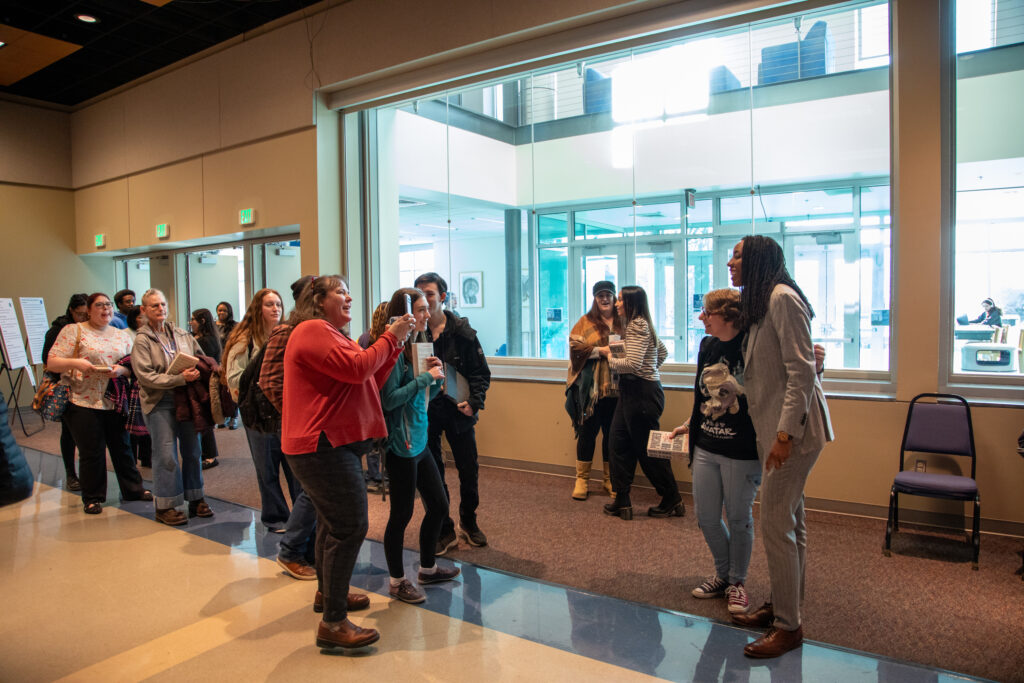
Resources – Learn more about:
- Rev. Dr. Martin Luther King at The King Center website
- The Poor People’s Campaign at the National Civil Rights Museum
- Dr. King’s last book: Where Do We Go from Here: Chaos or Community
- Google’s 25 years in search: The Most Searched: A Celebration of Black History Makers (video)
- Dr. Love’s website, including her books and learning tools
- Clark College BUILD Bookclub questions created for We Want to Do More Than Survive, read Library article
All photos: Clark College
More photos from the keynote are available to view on our Flickr page.
